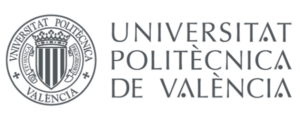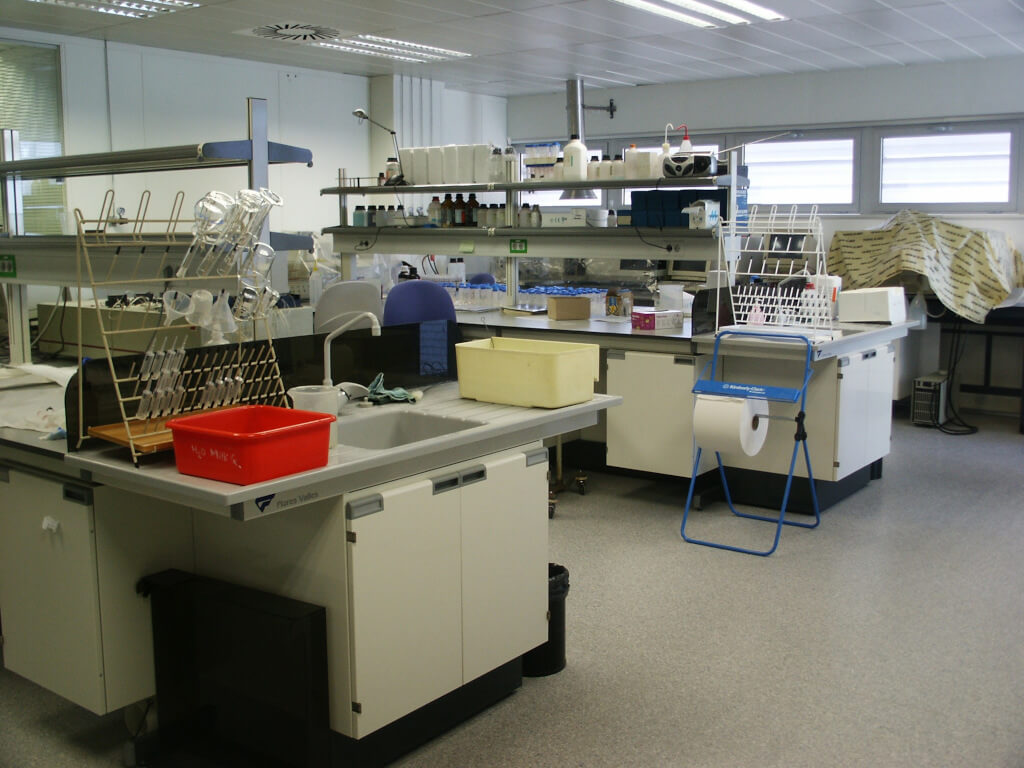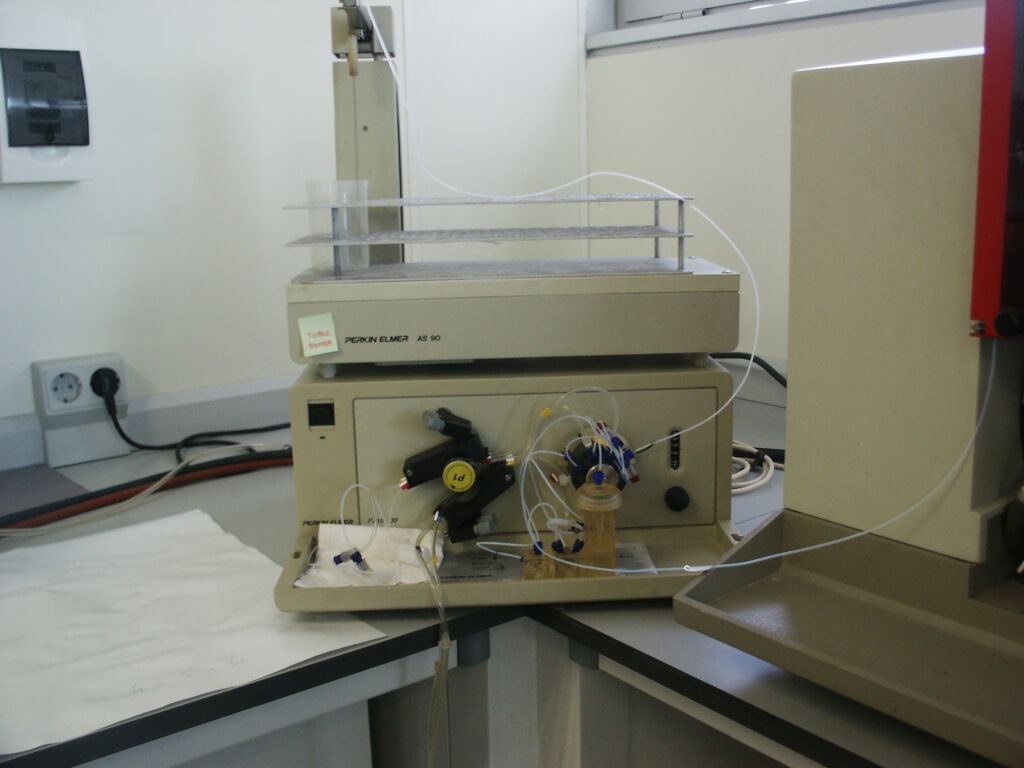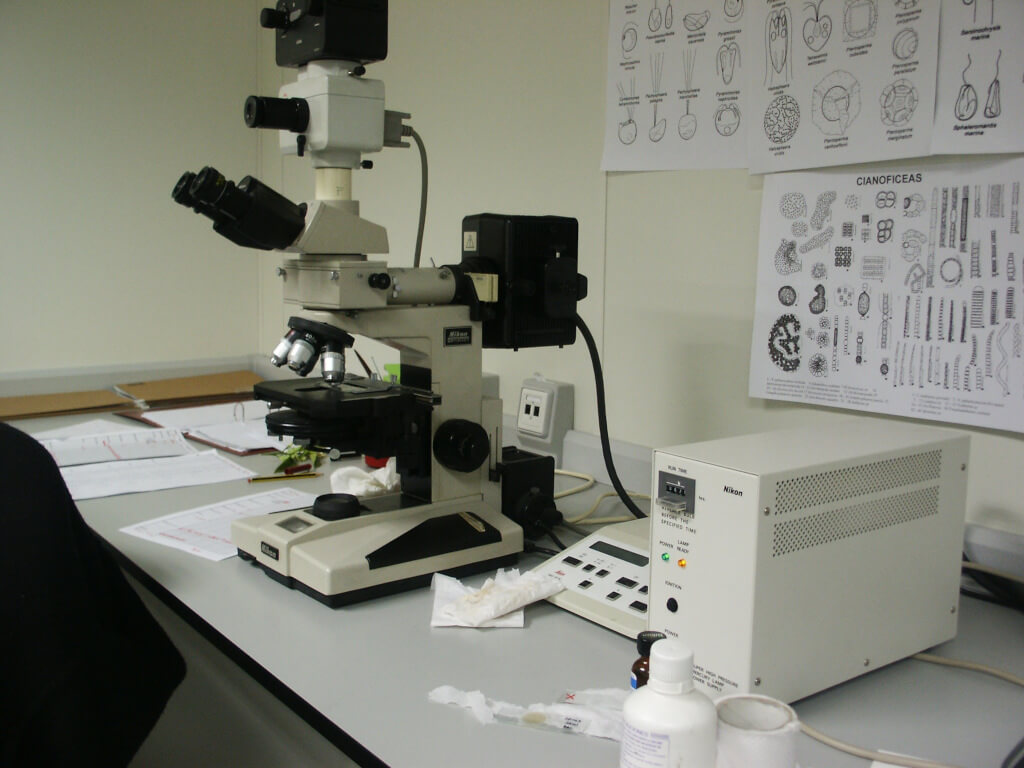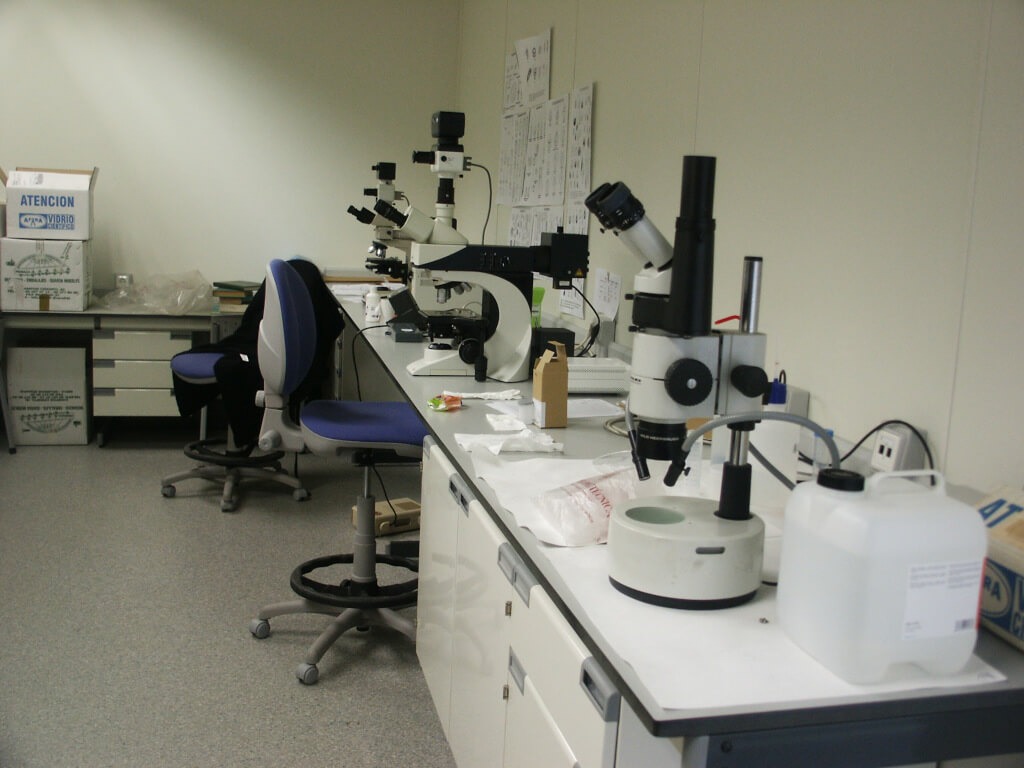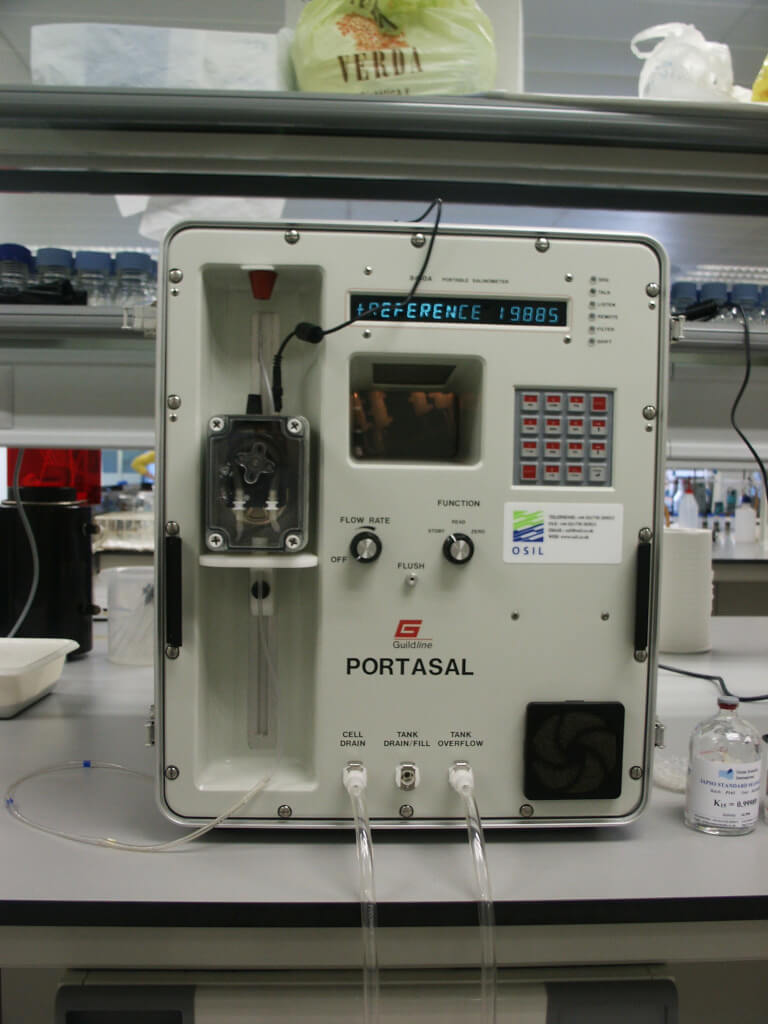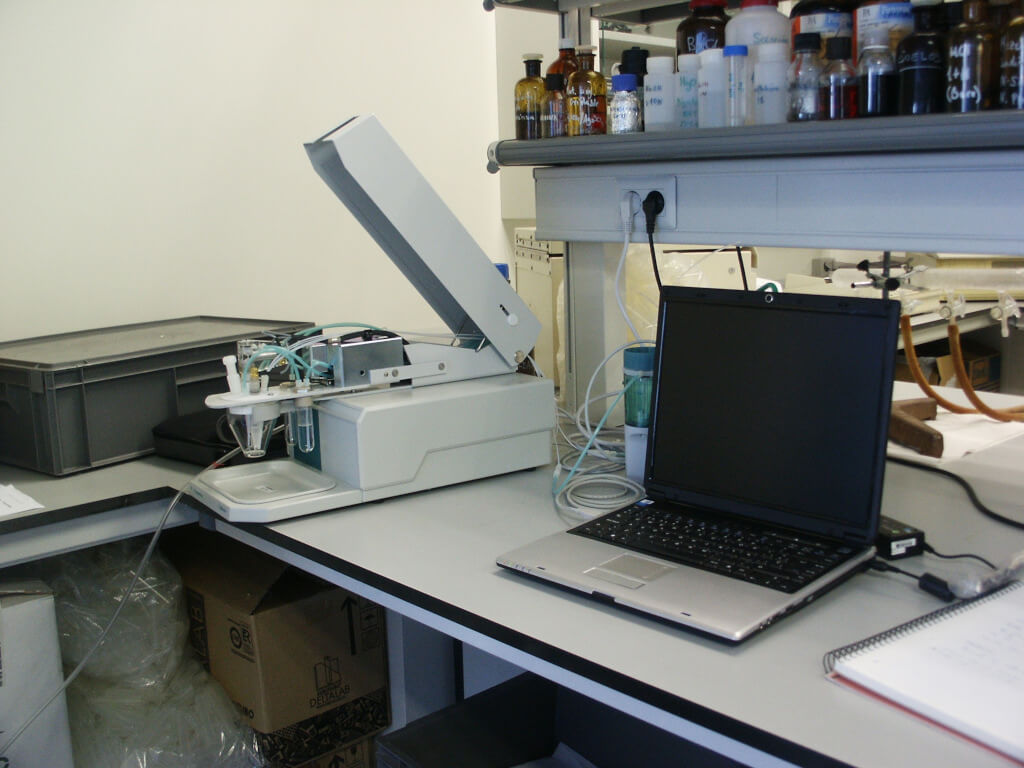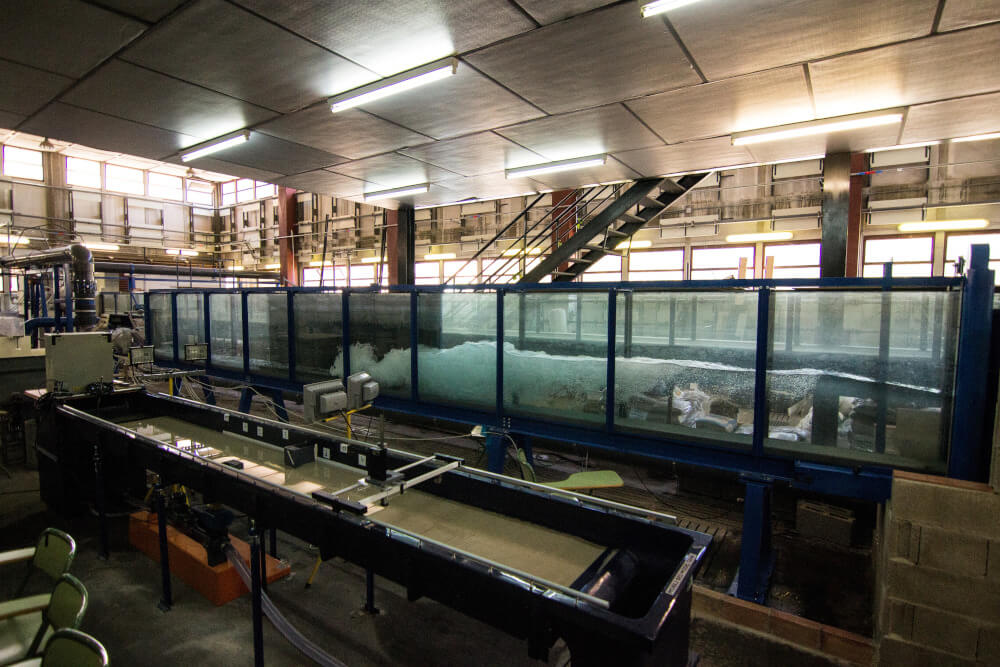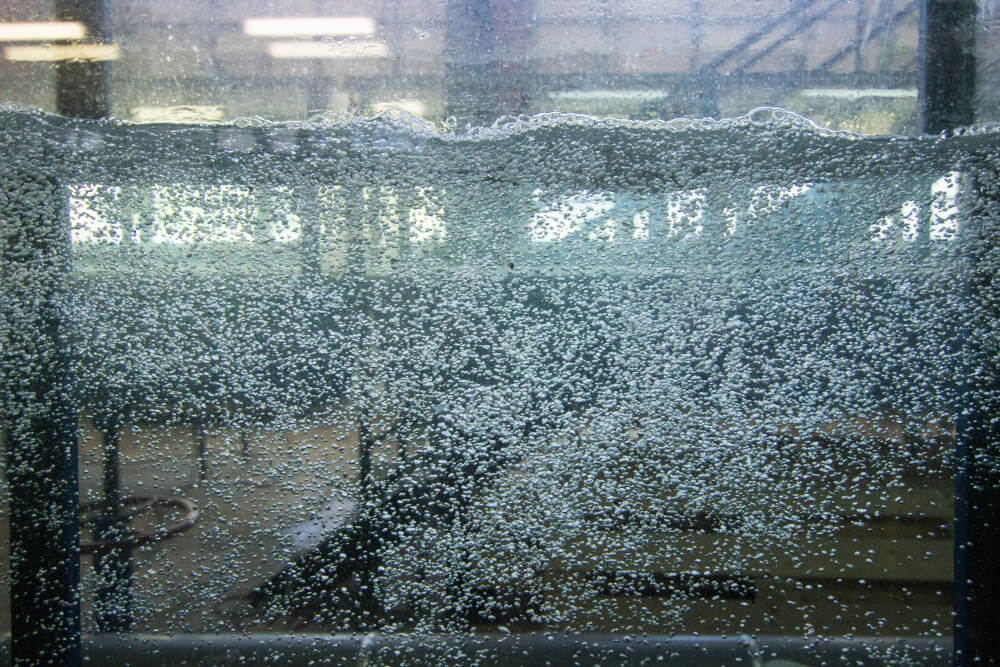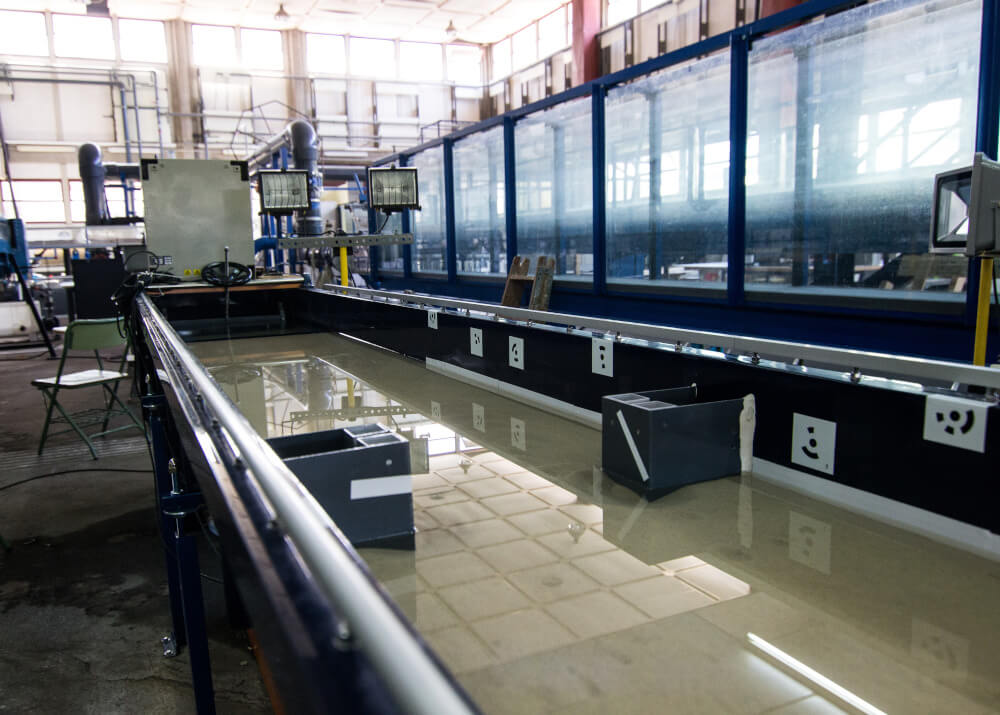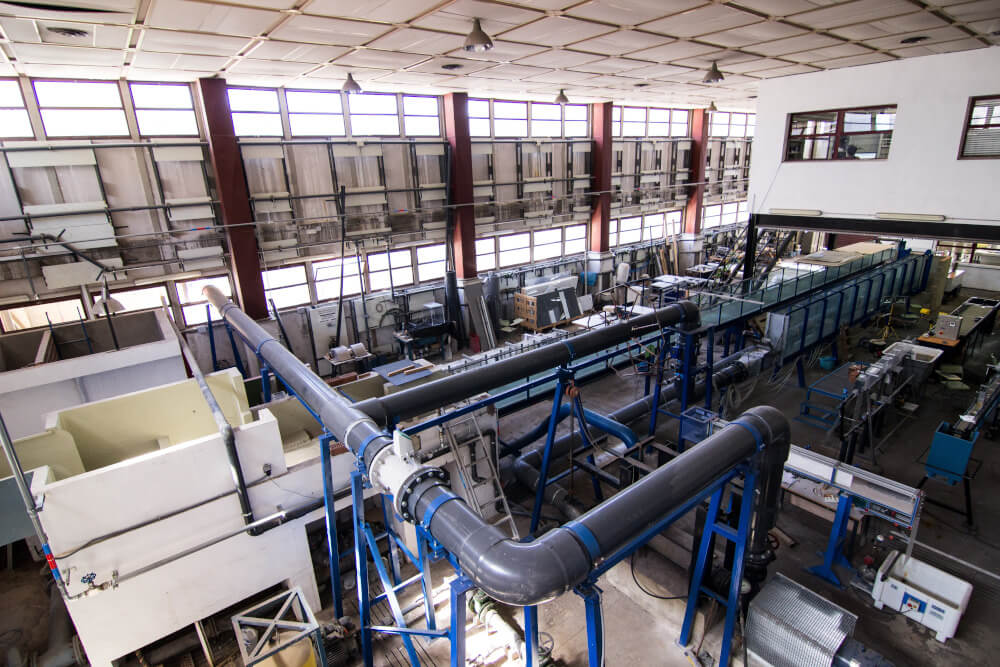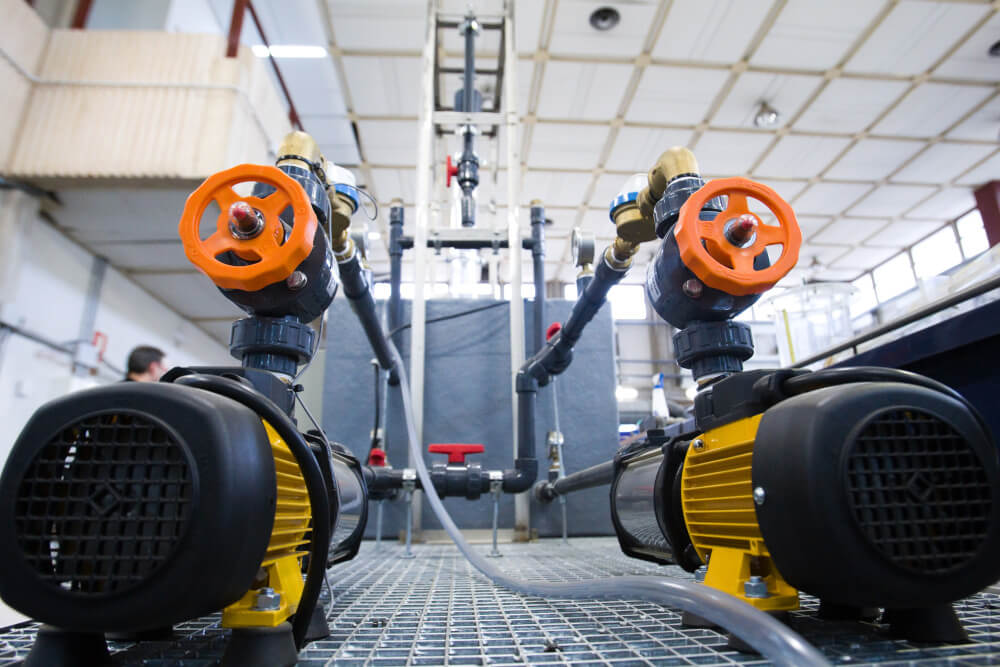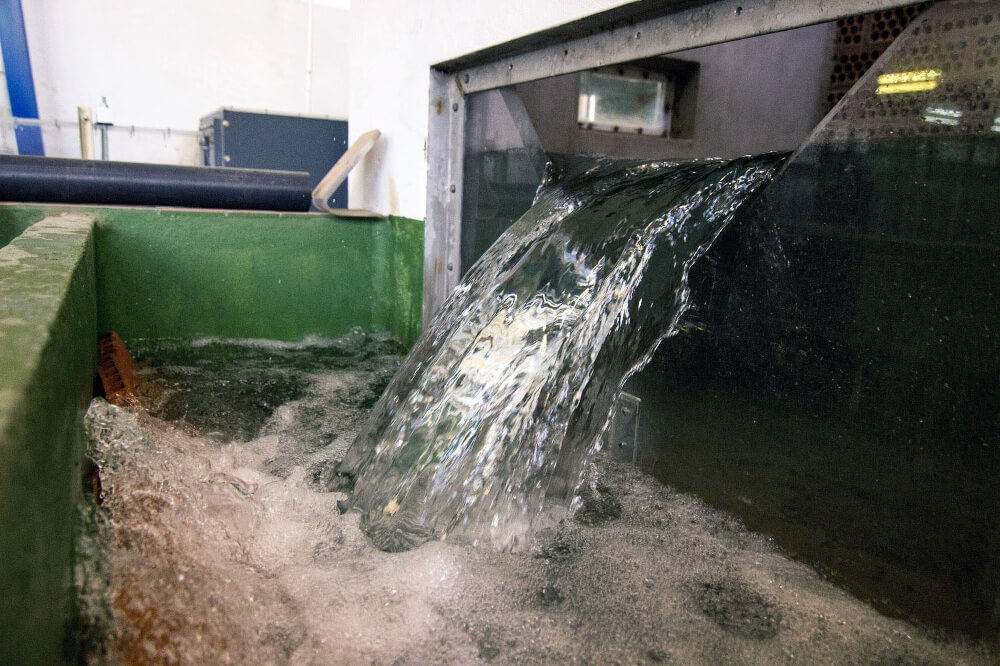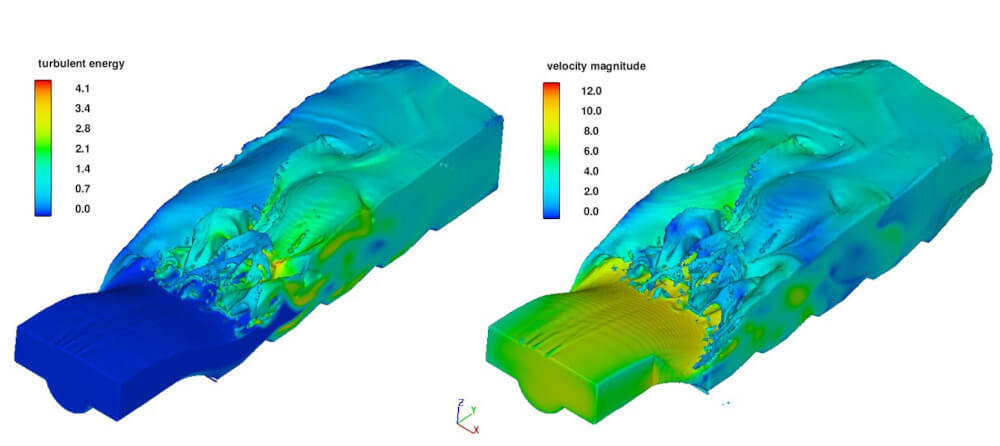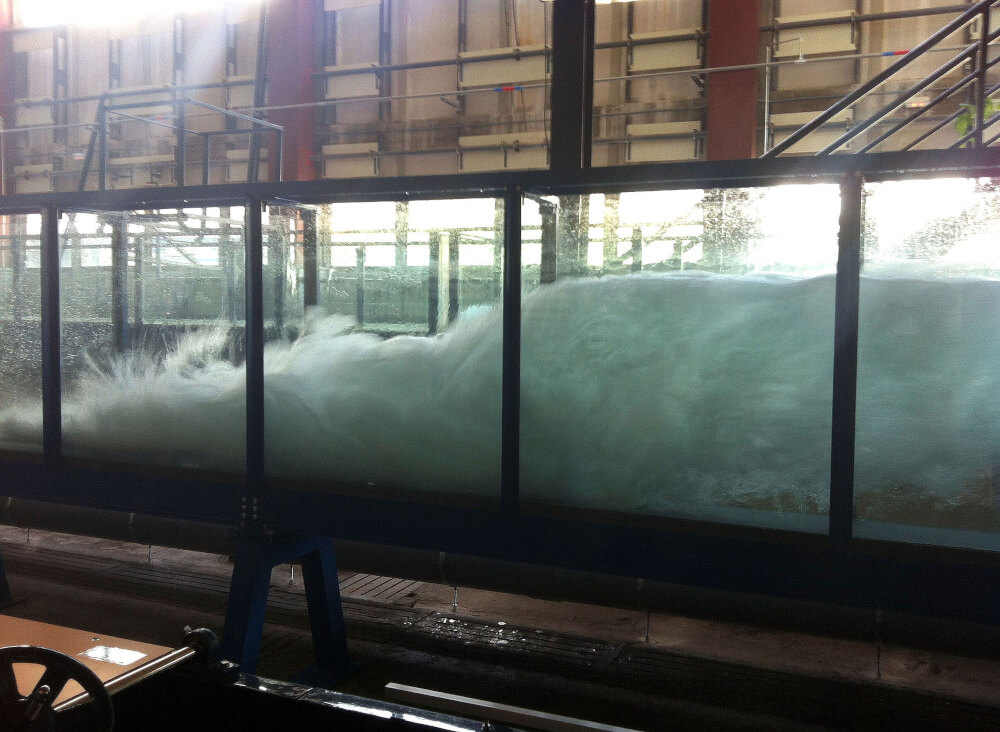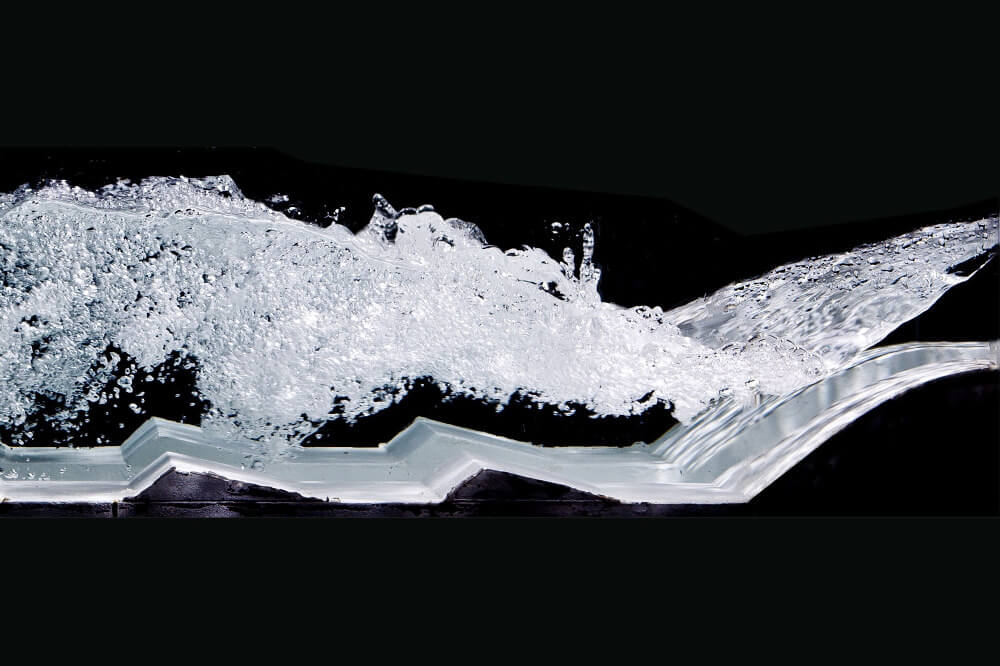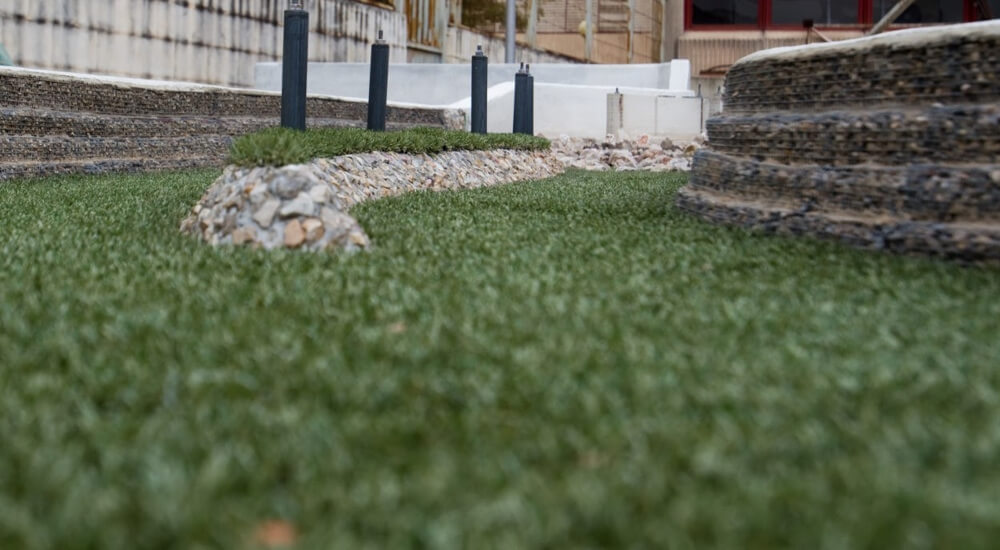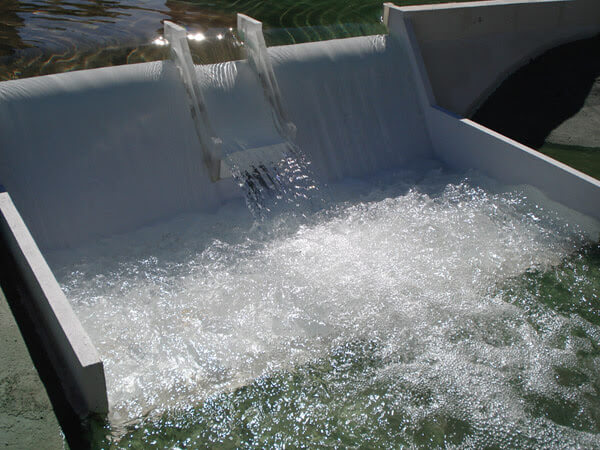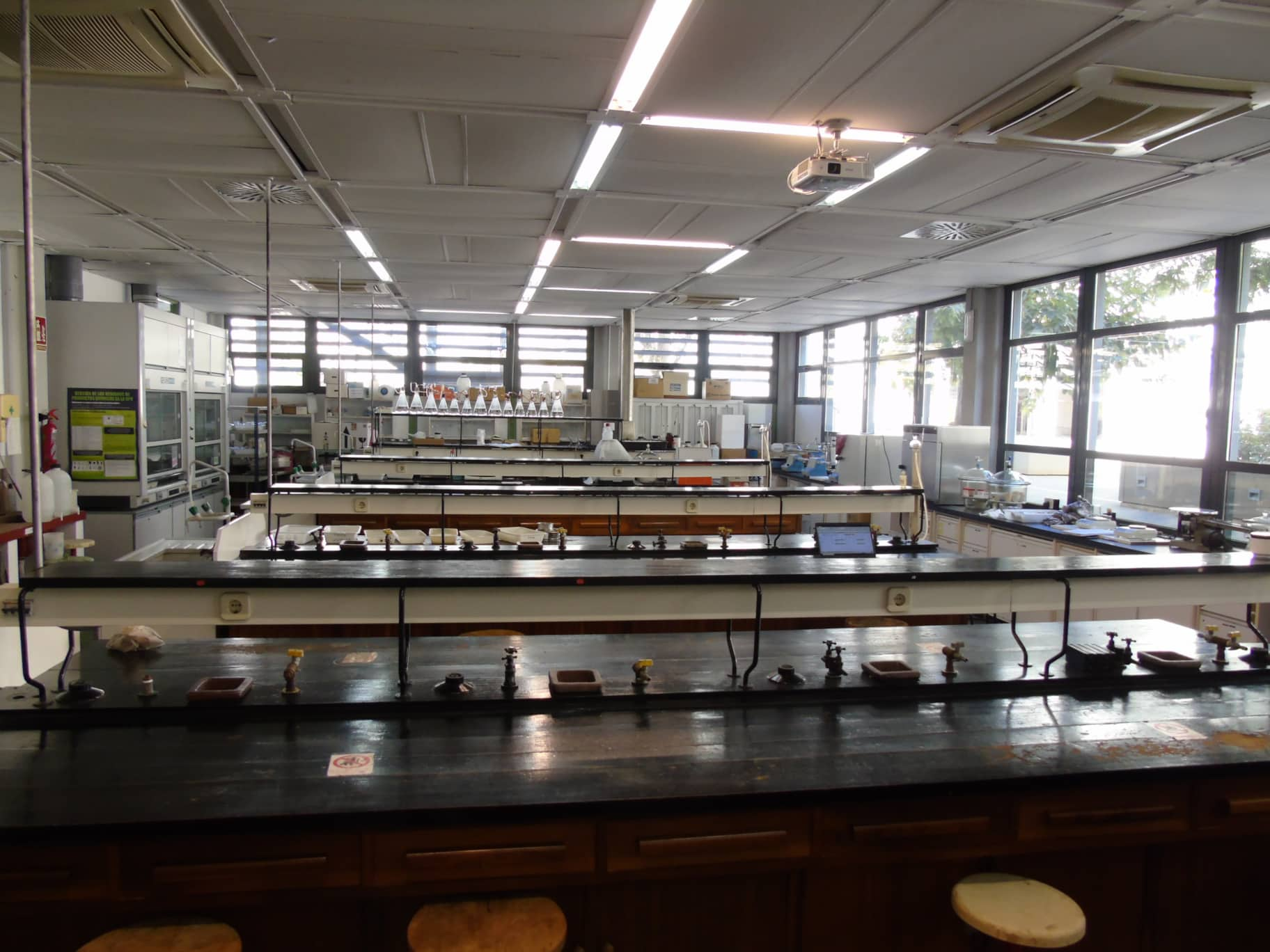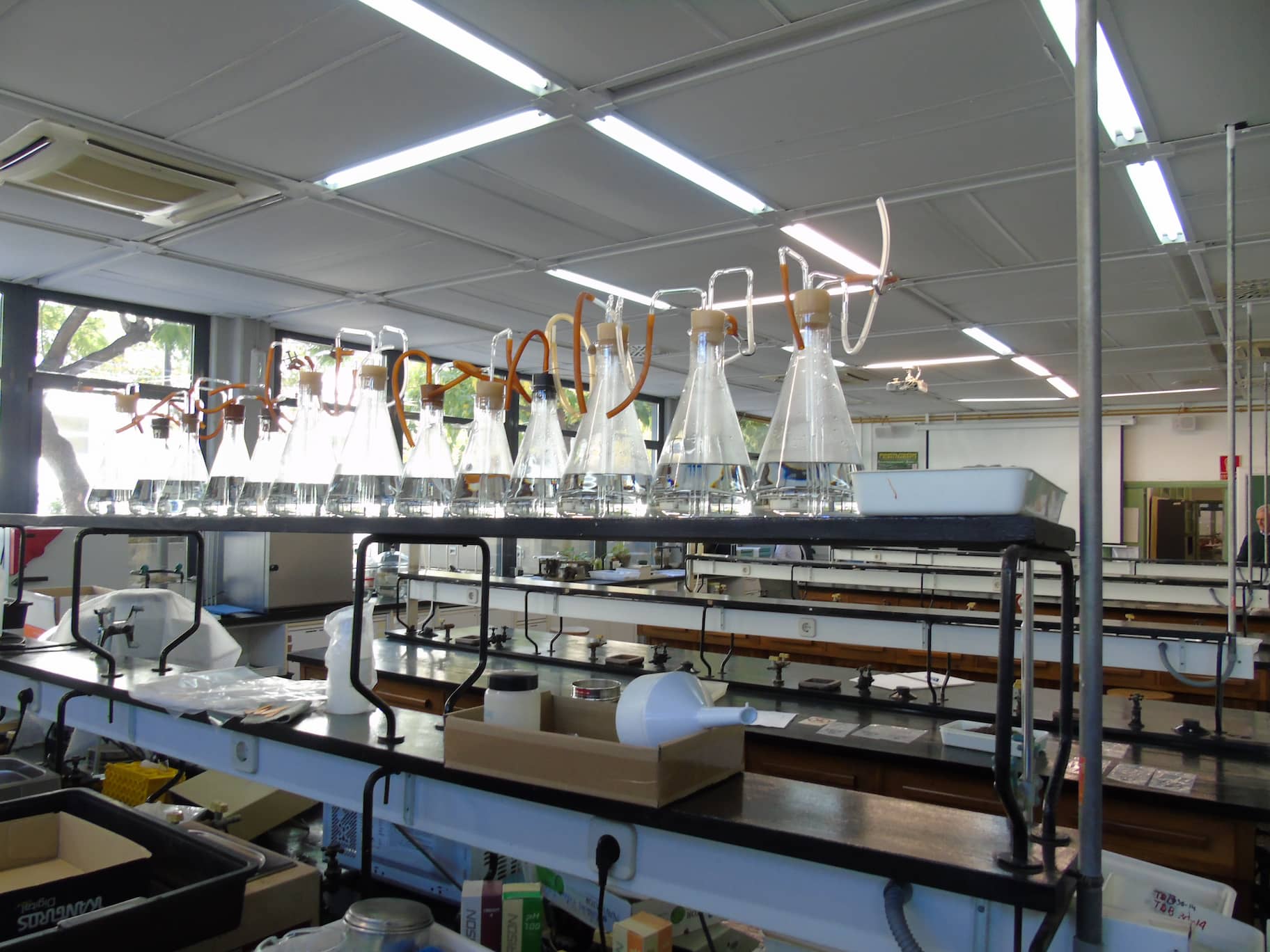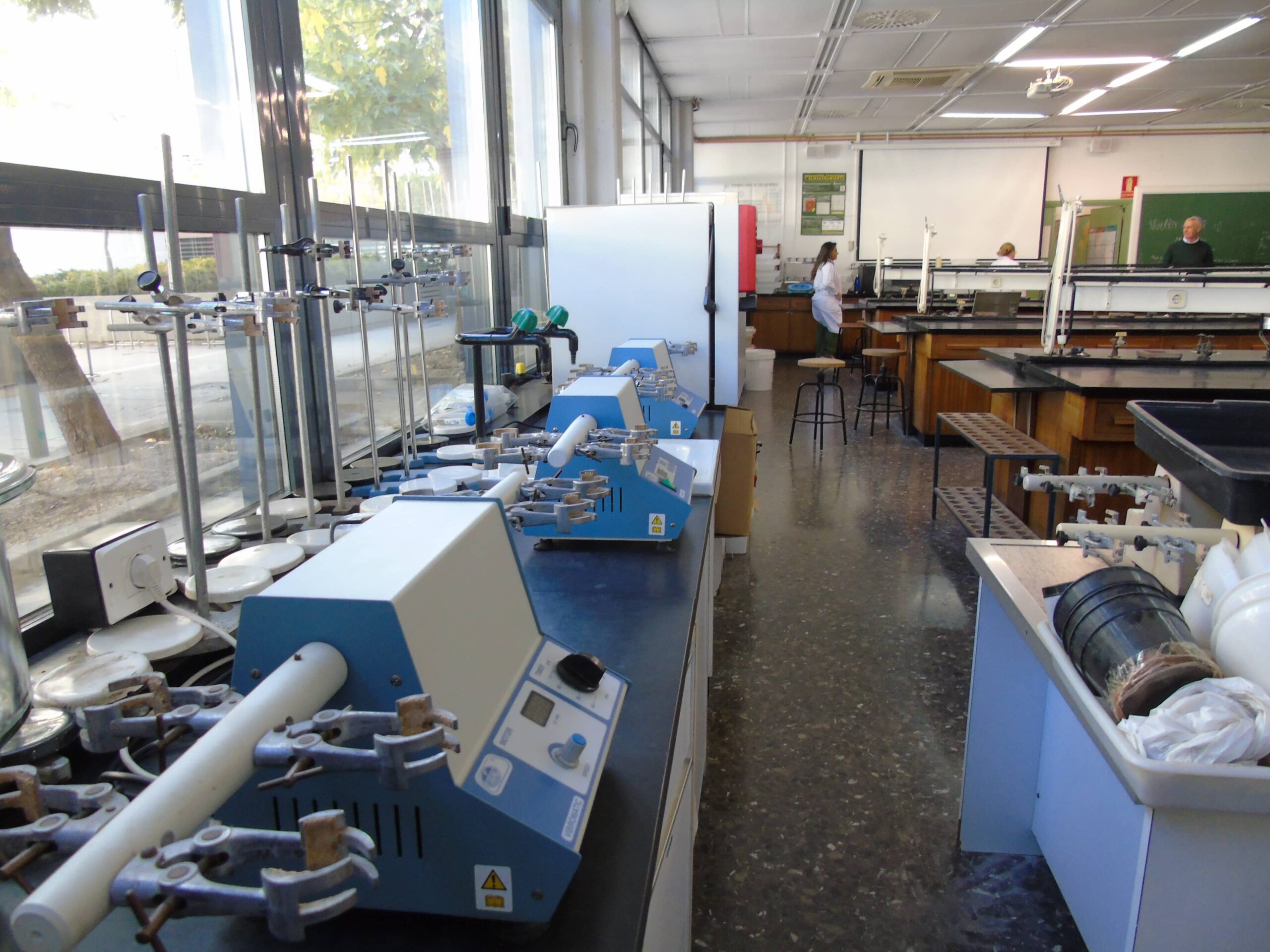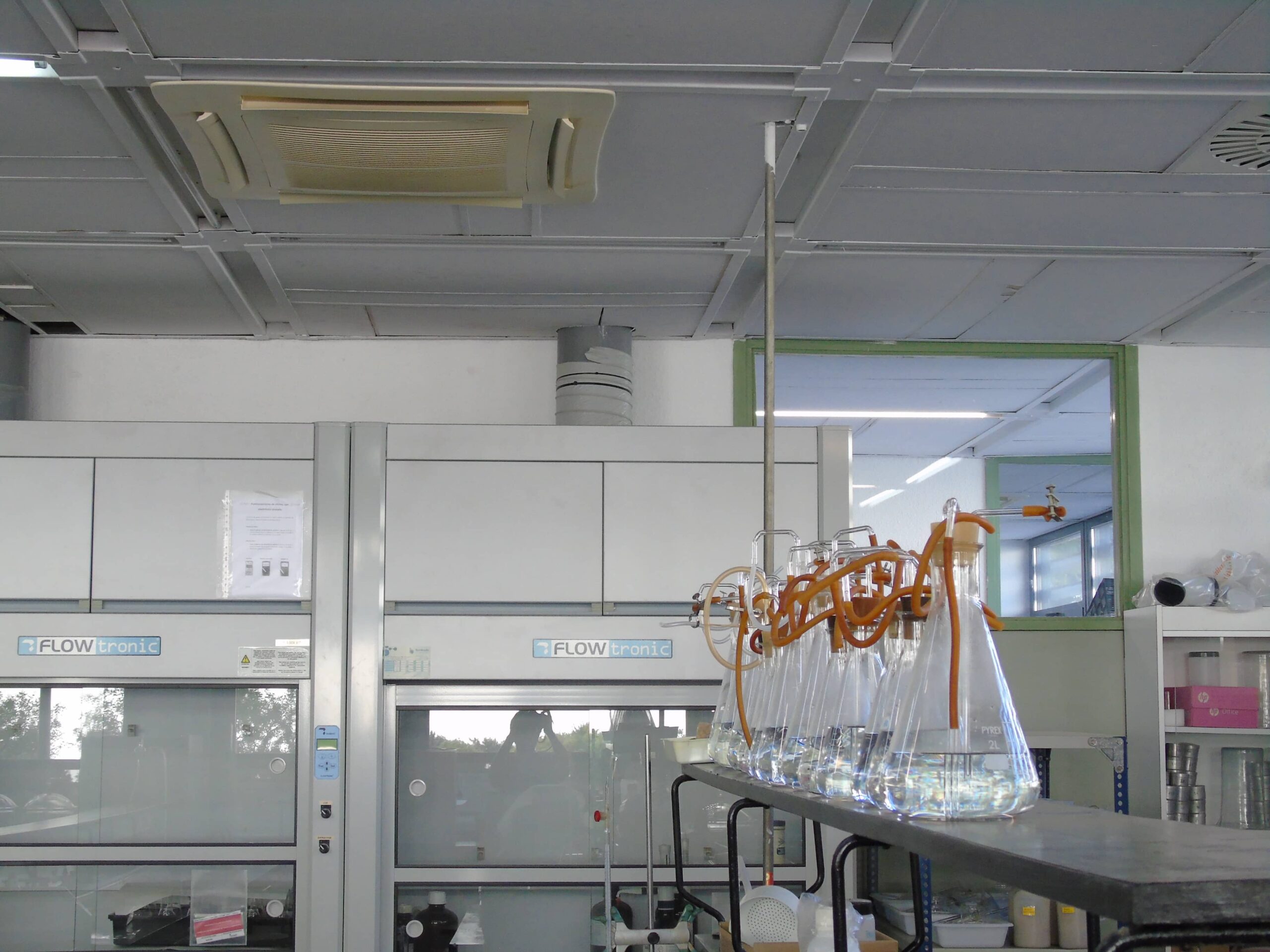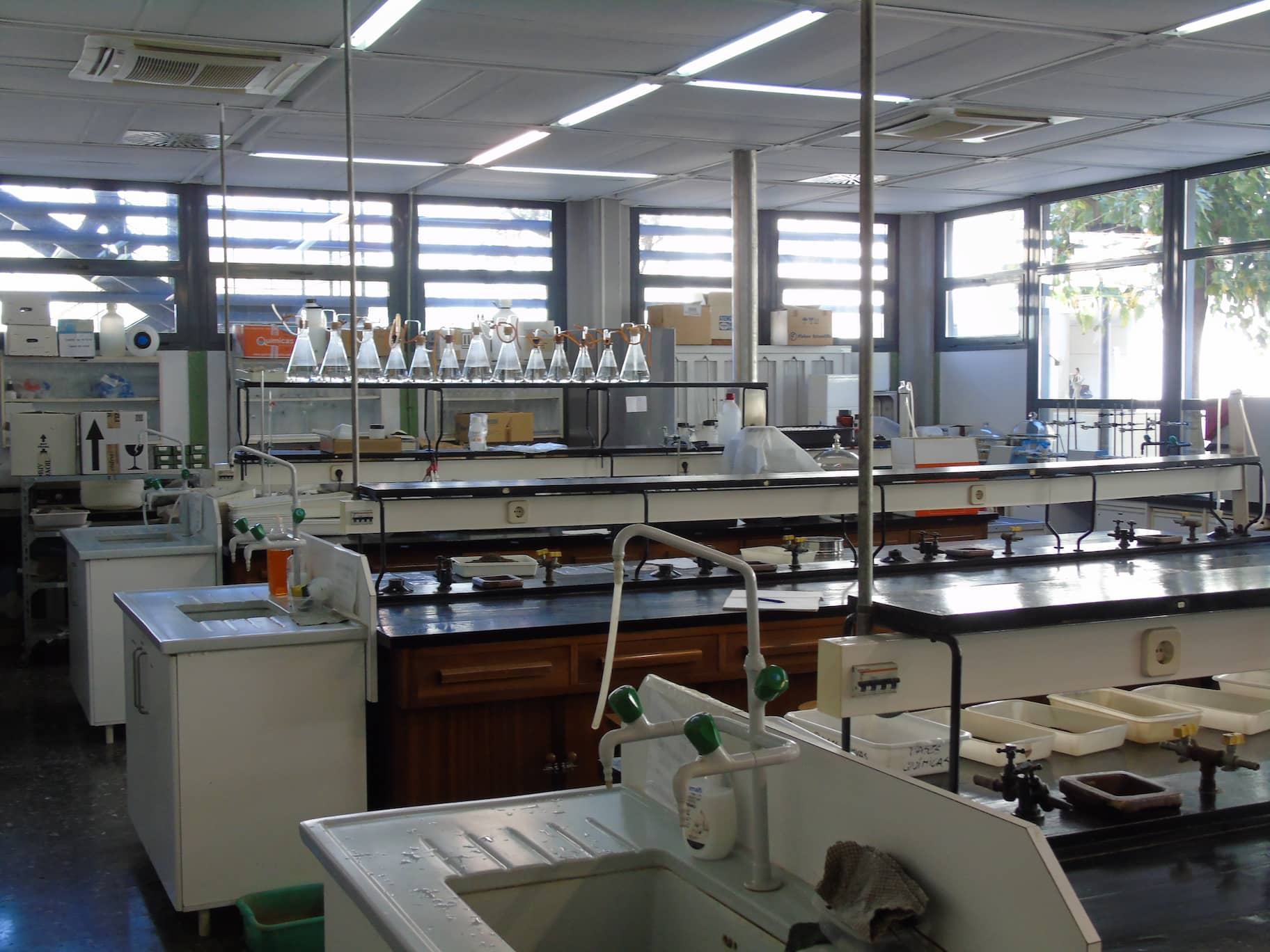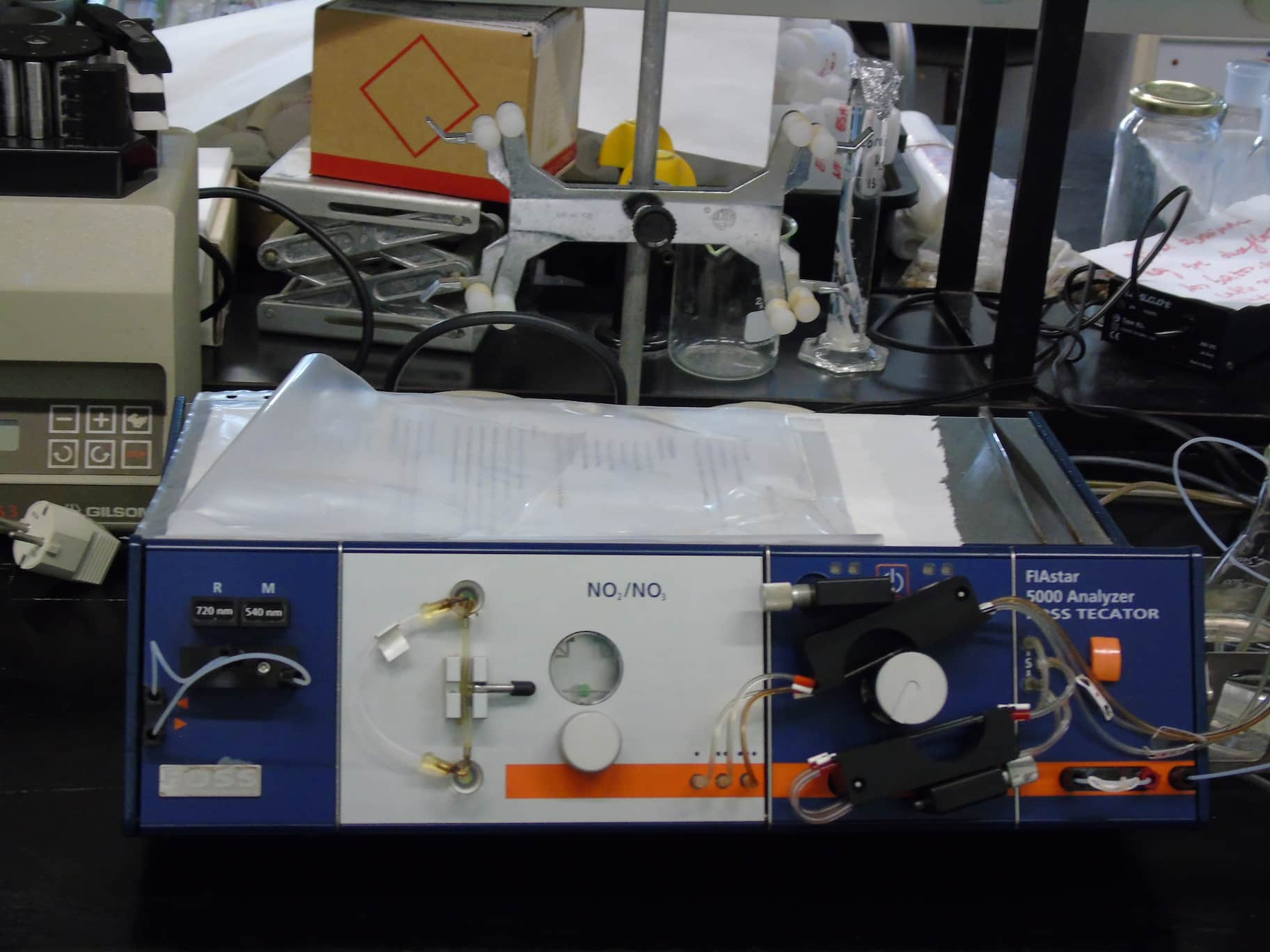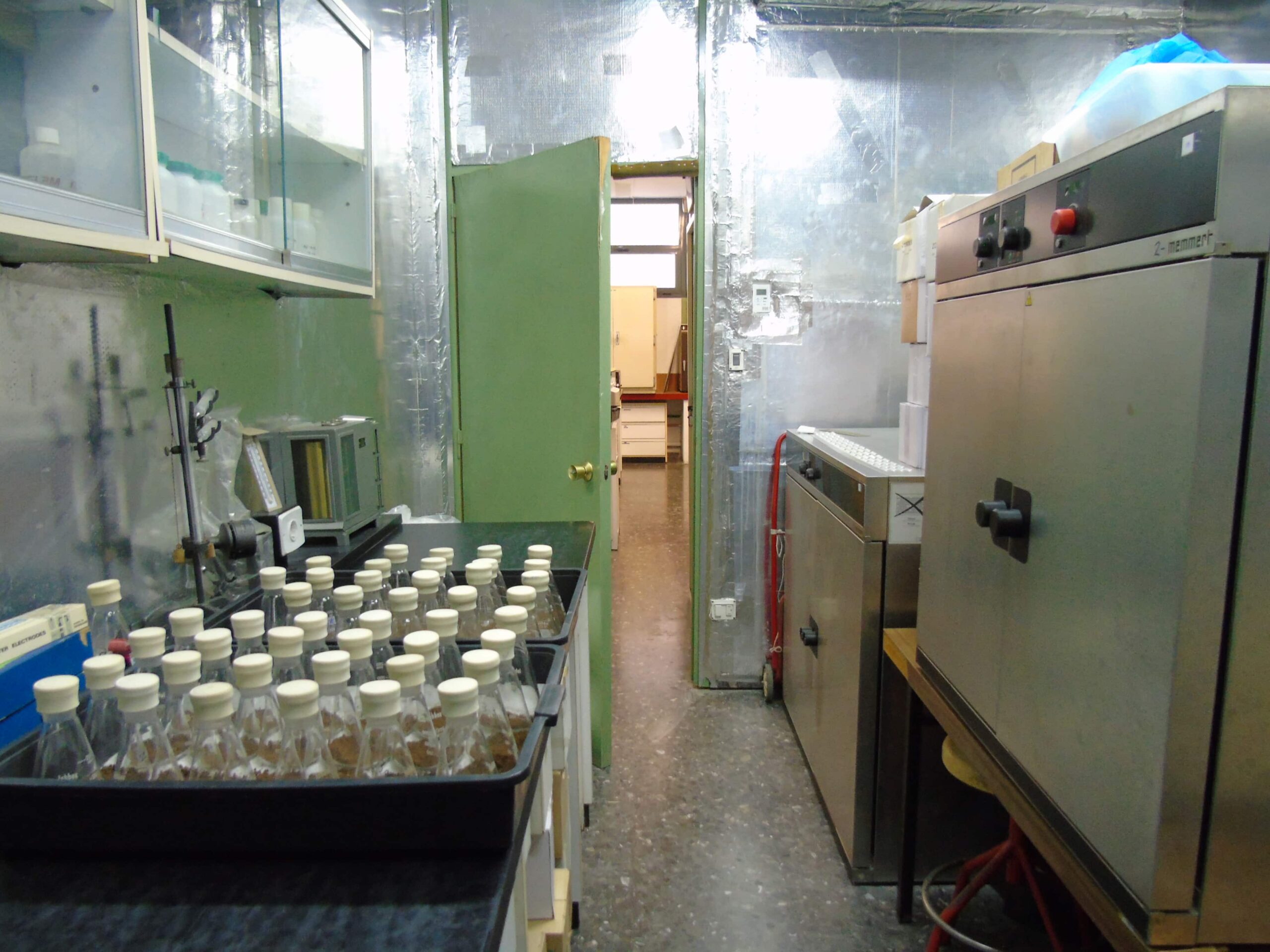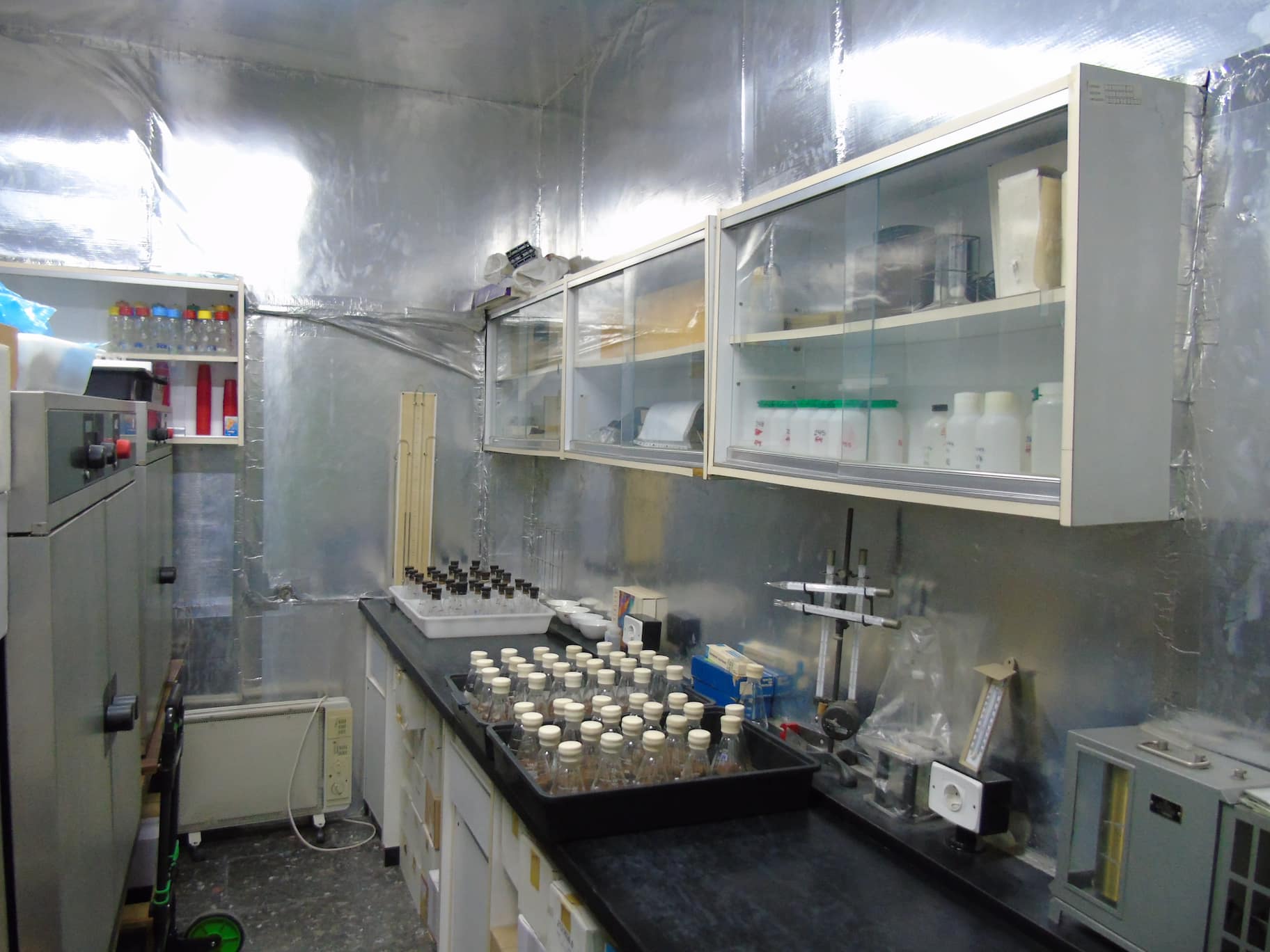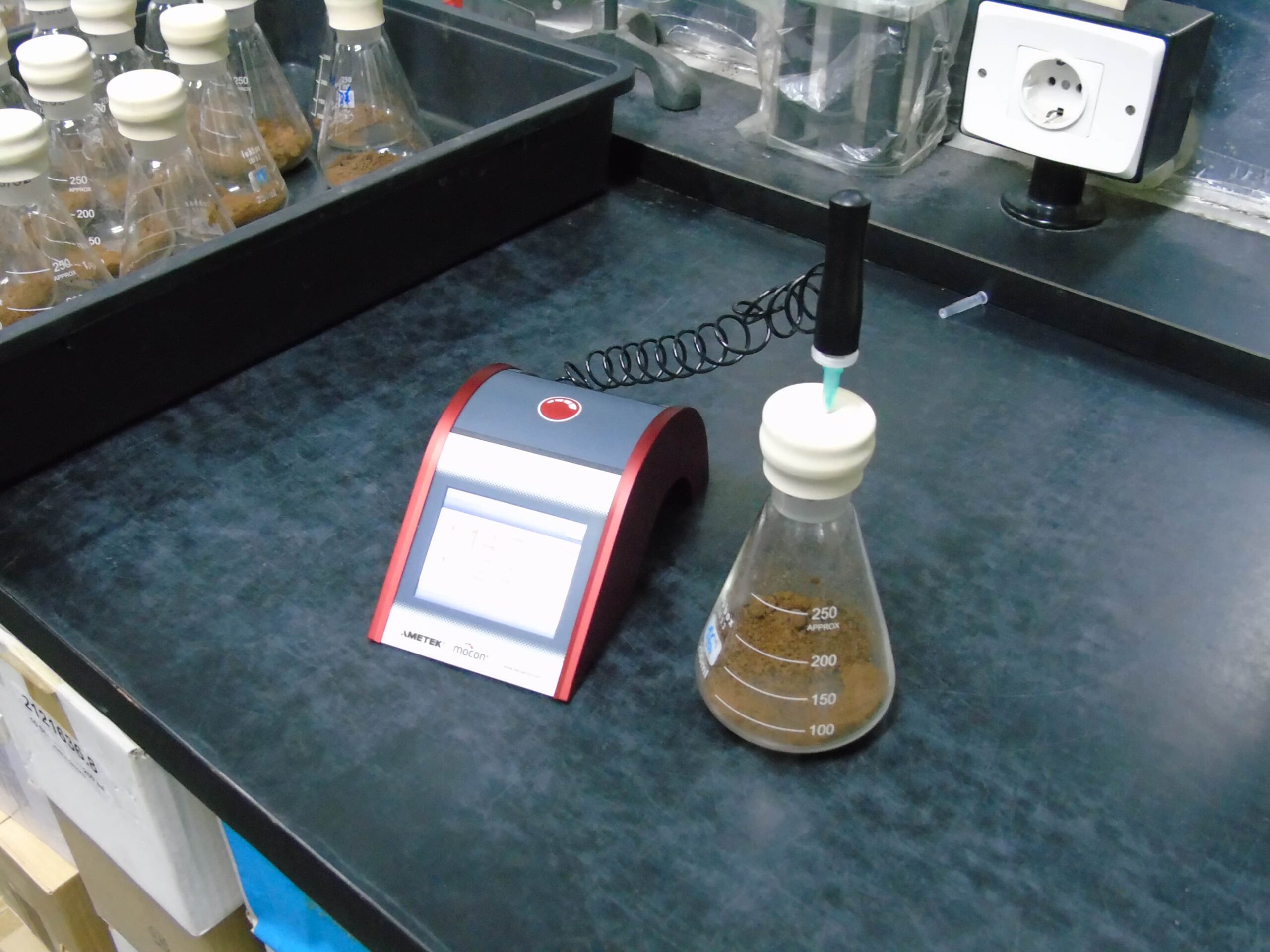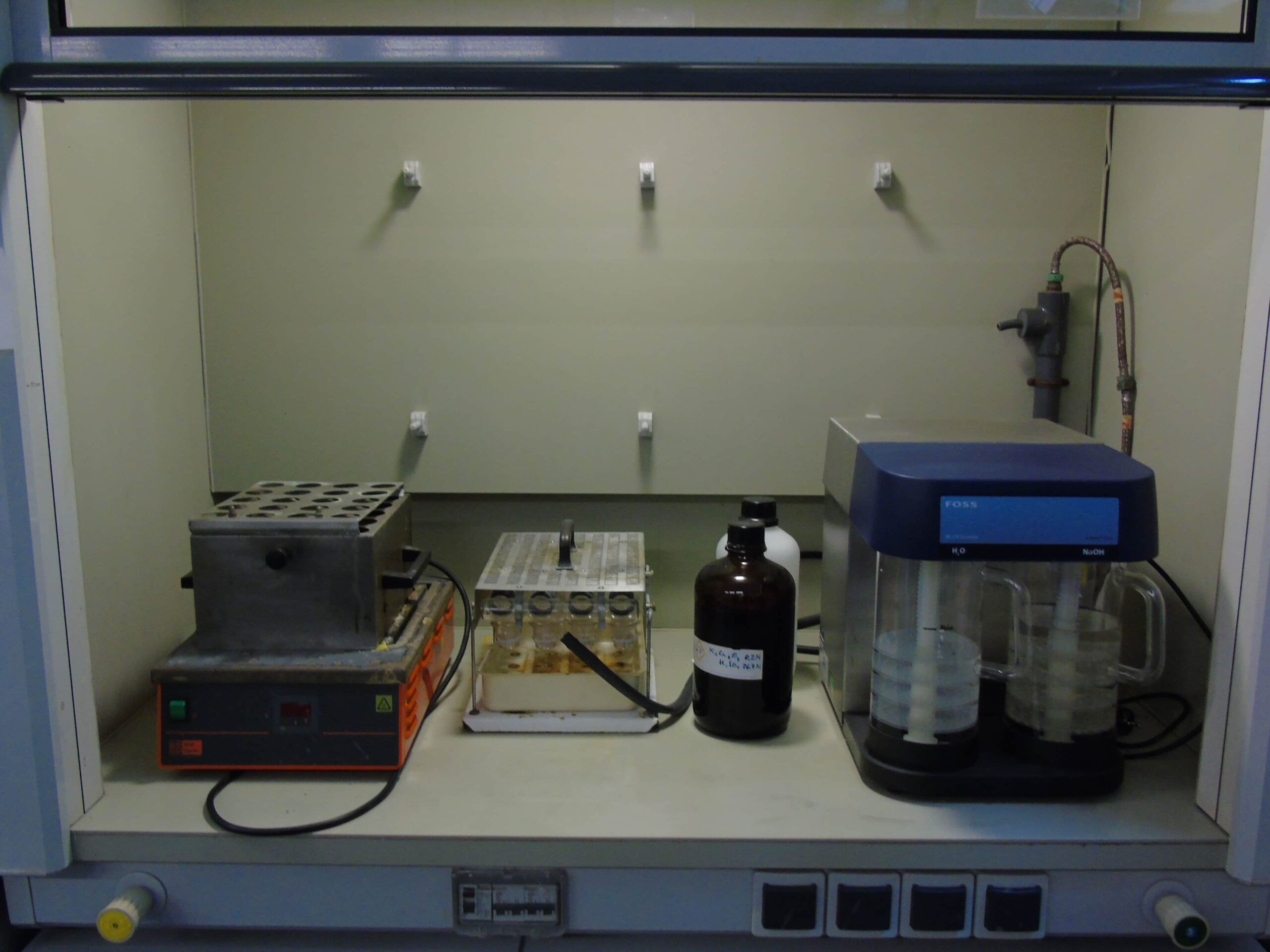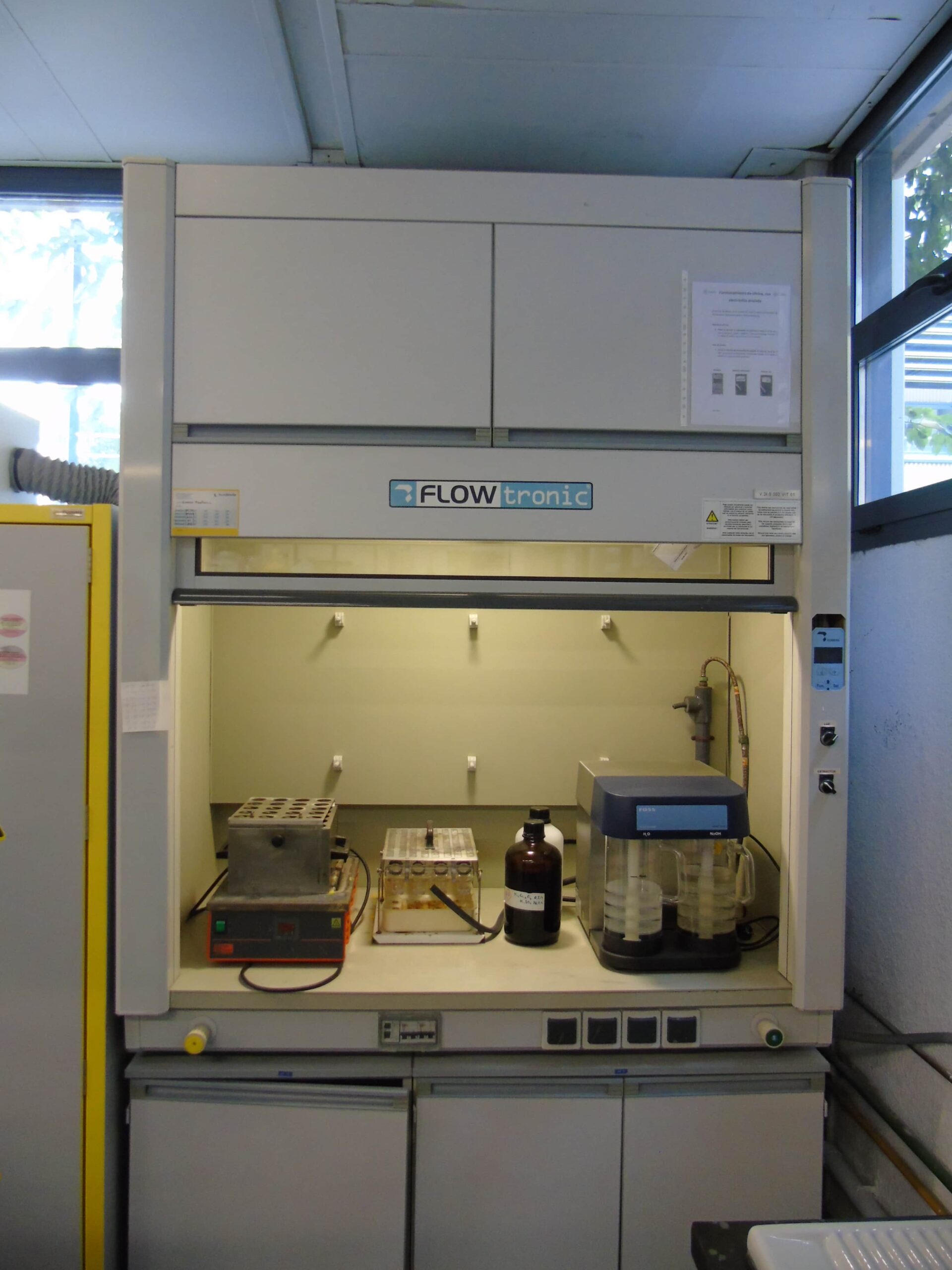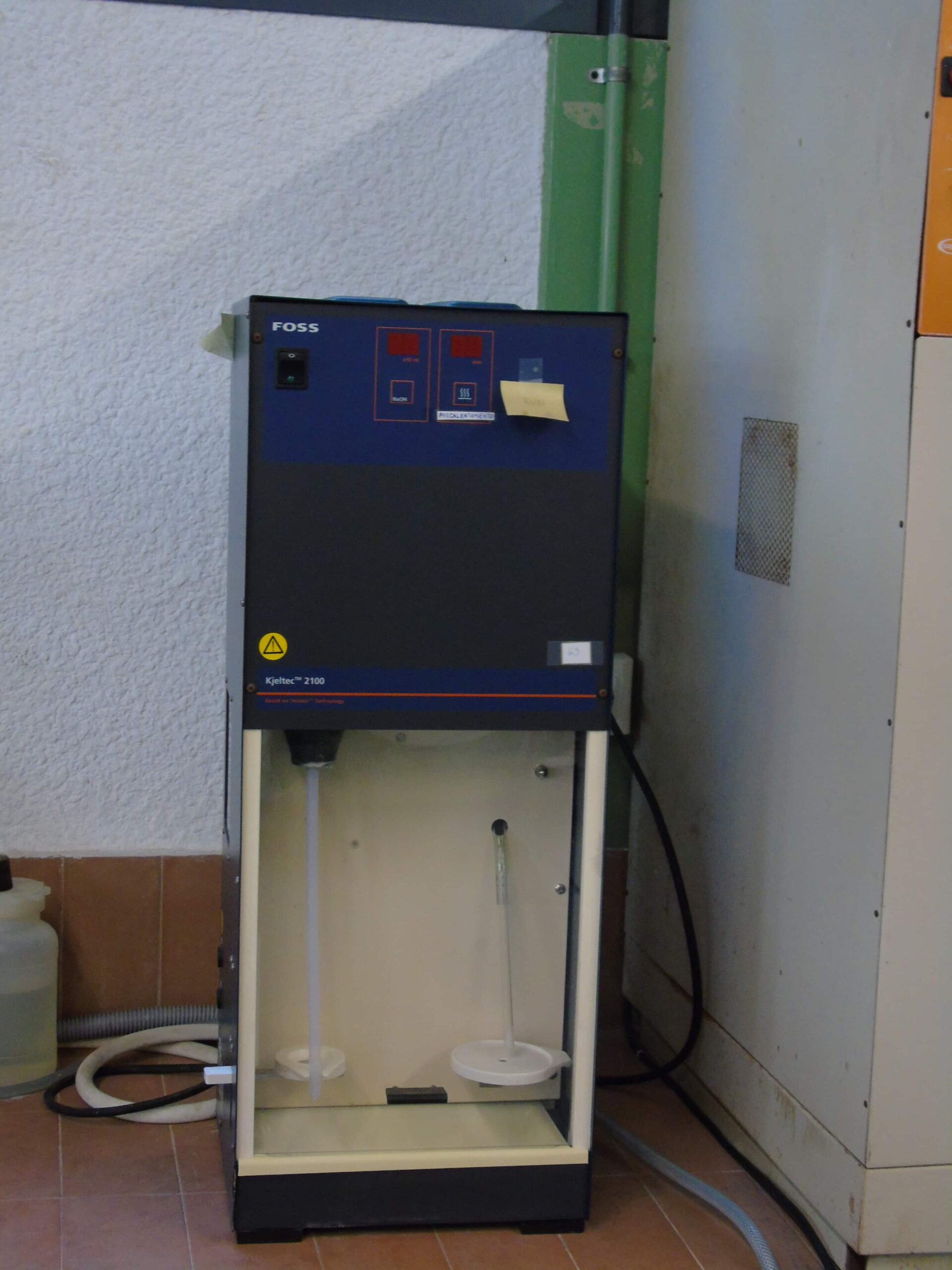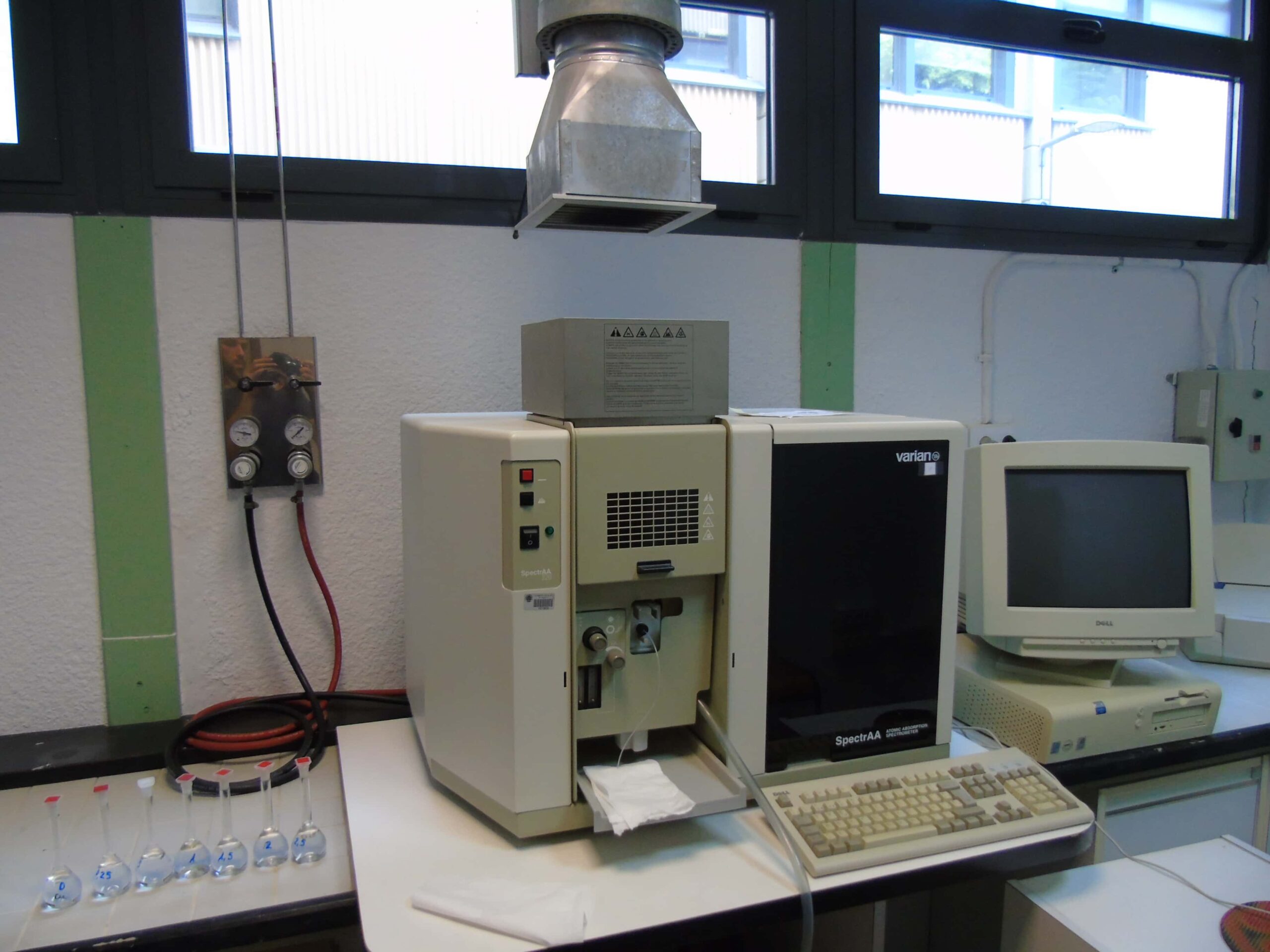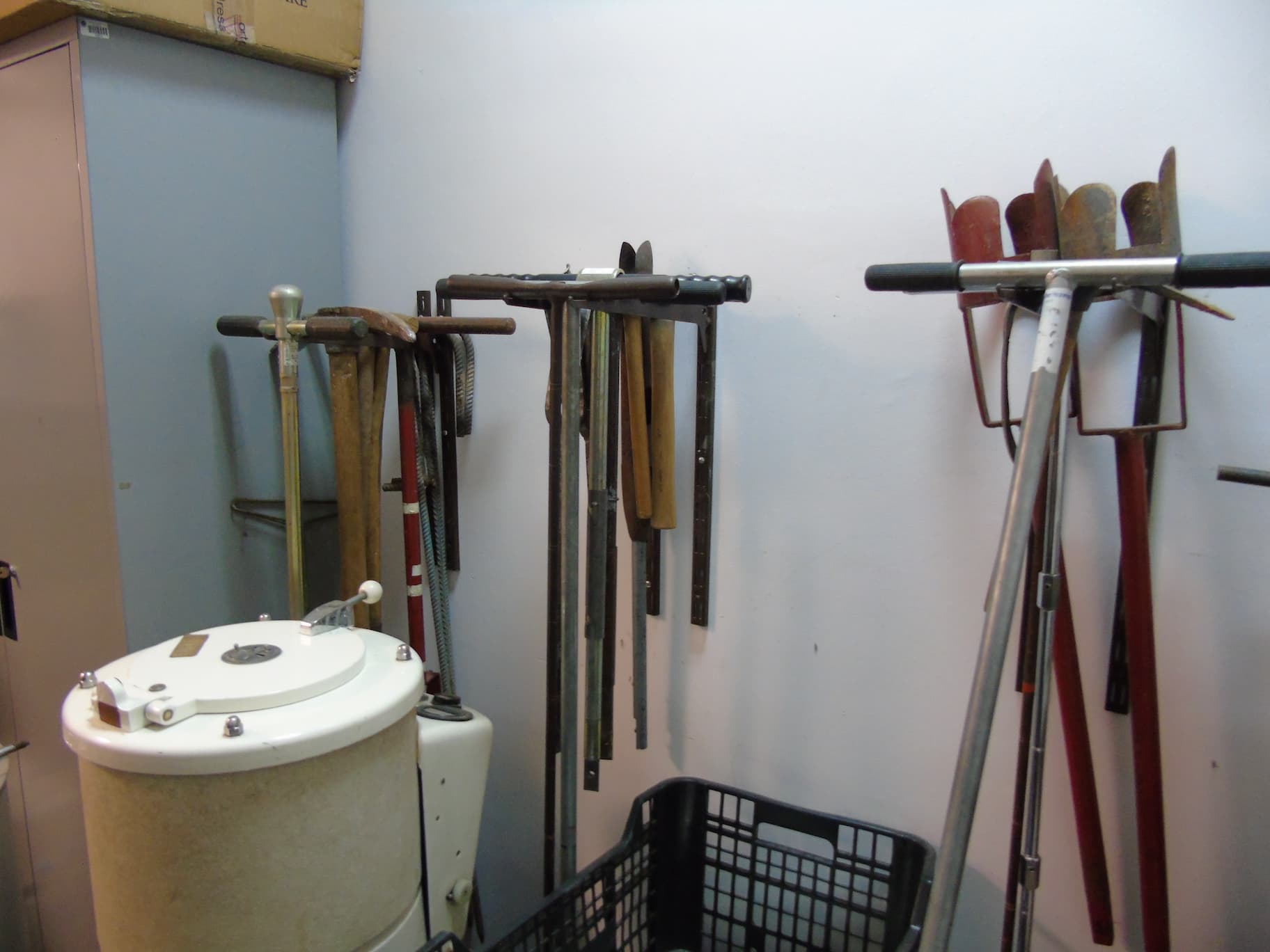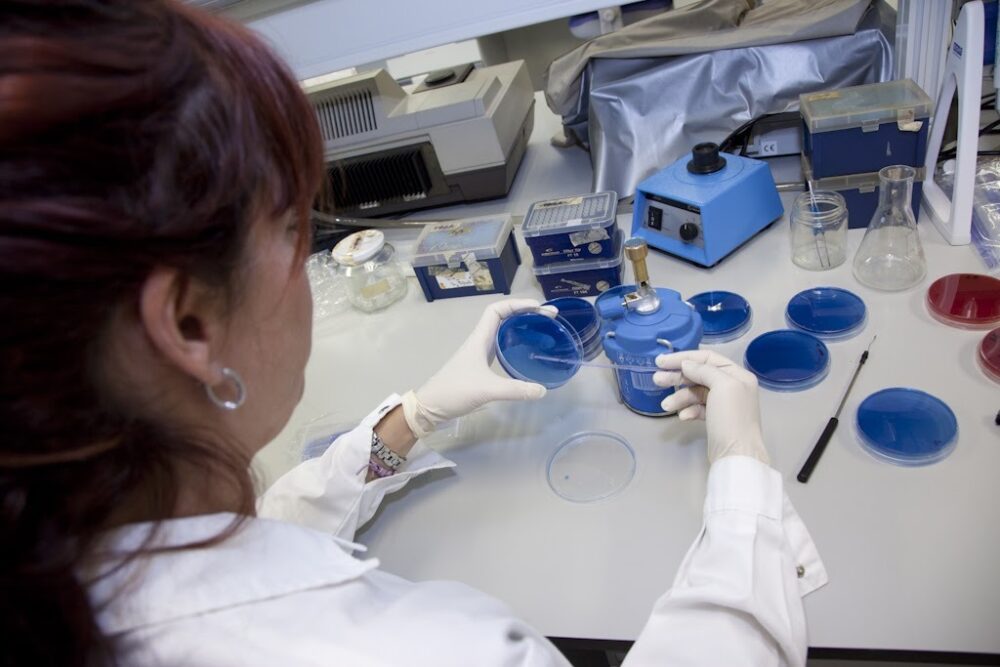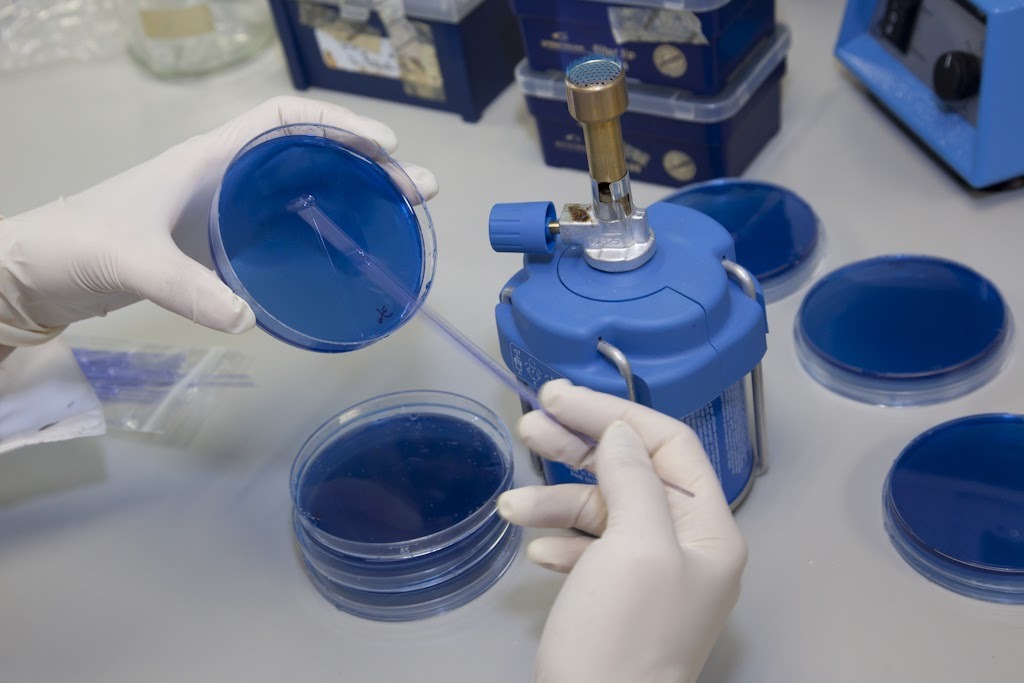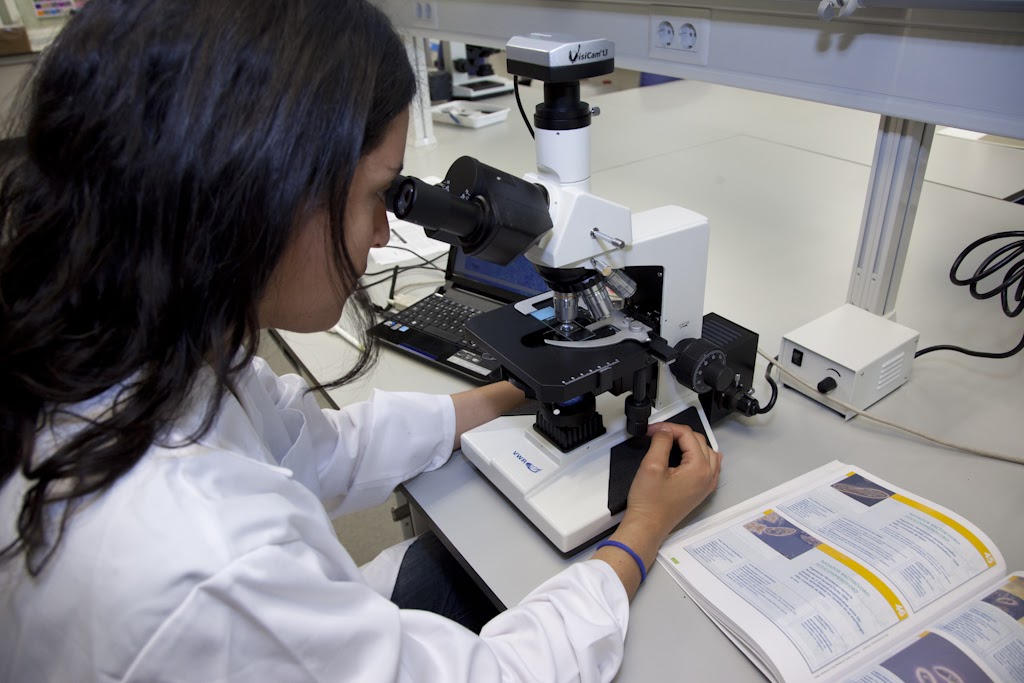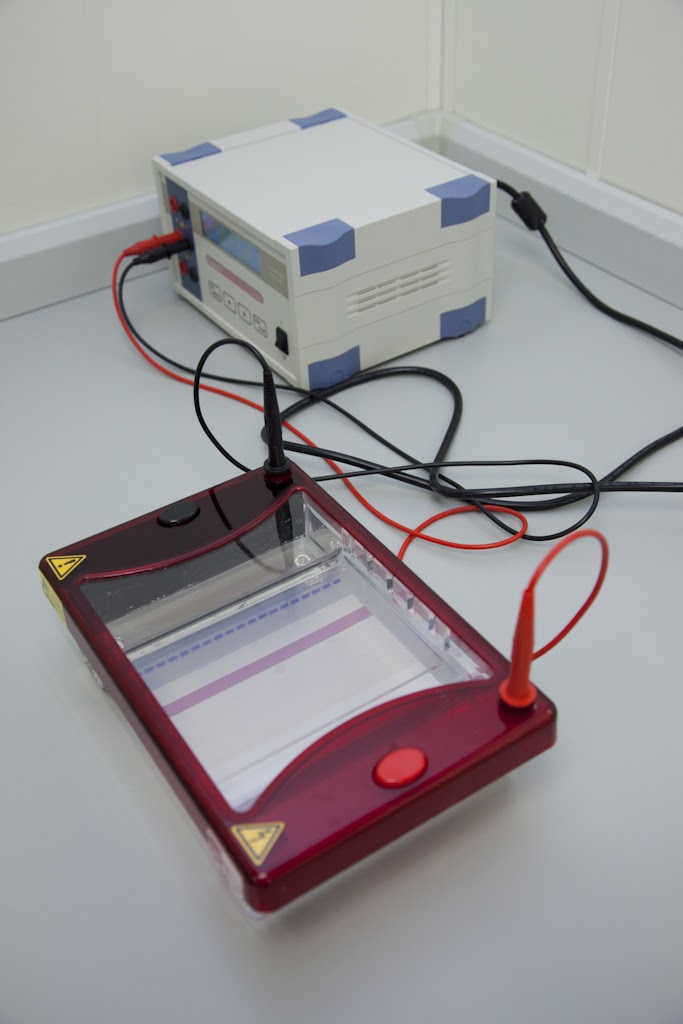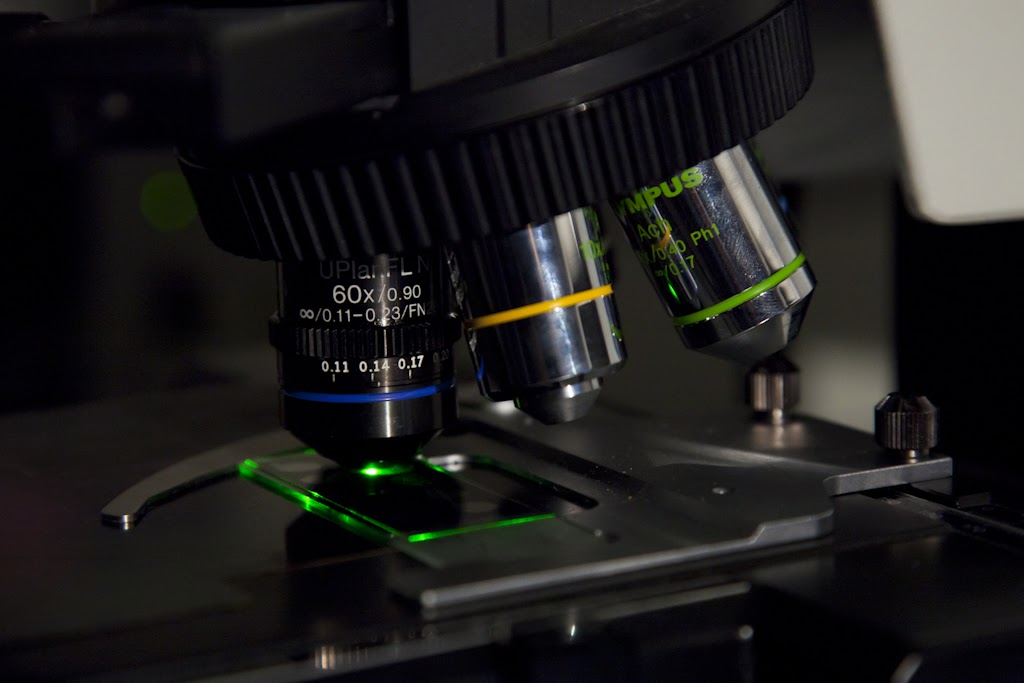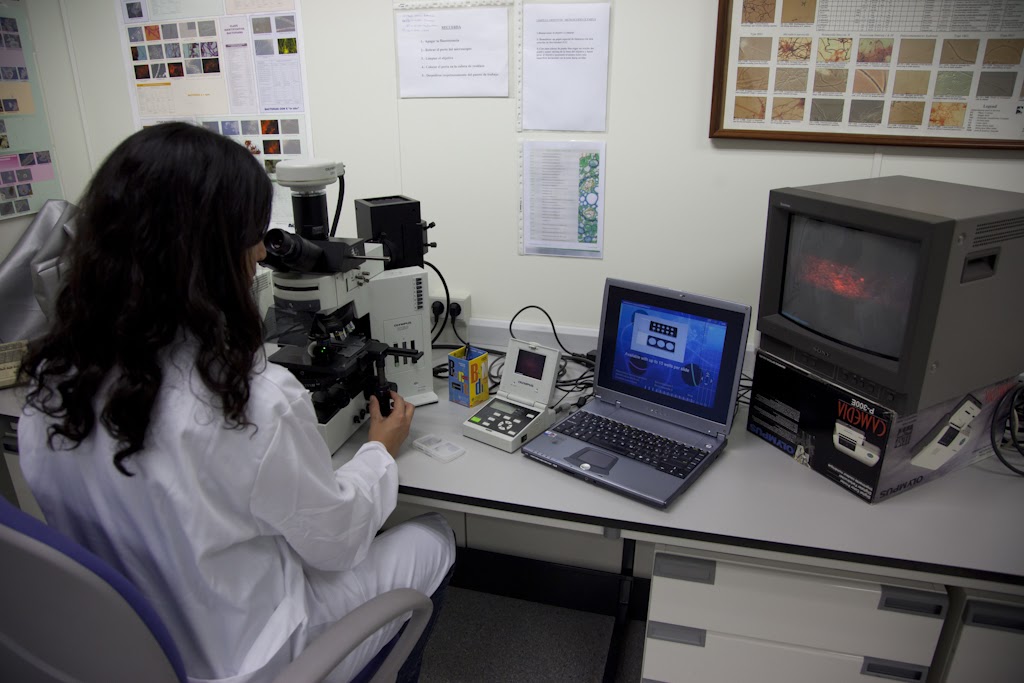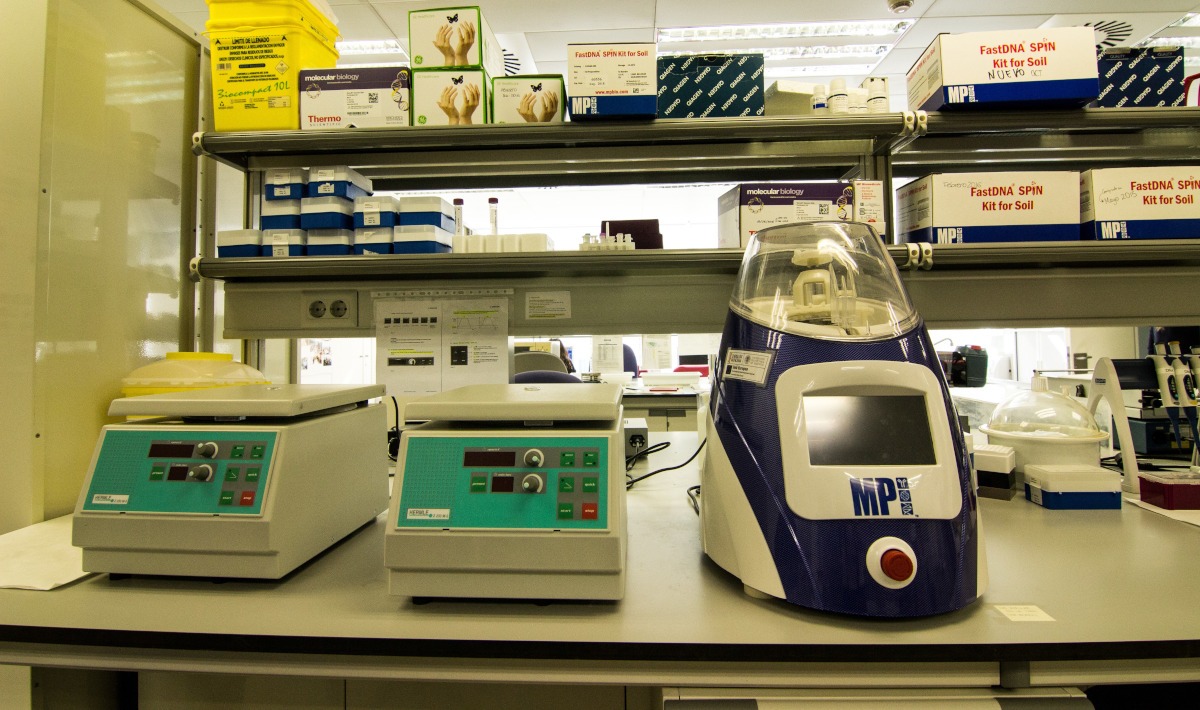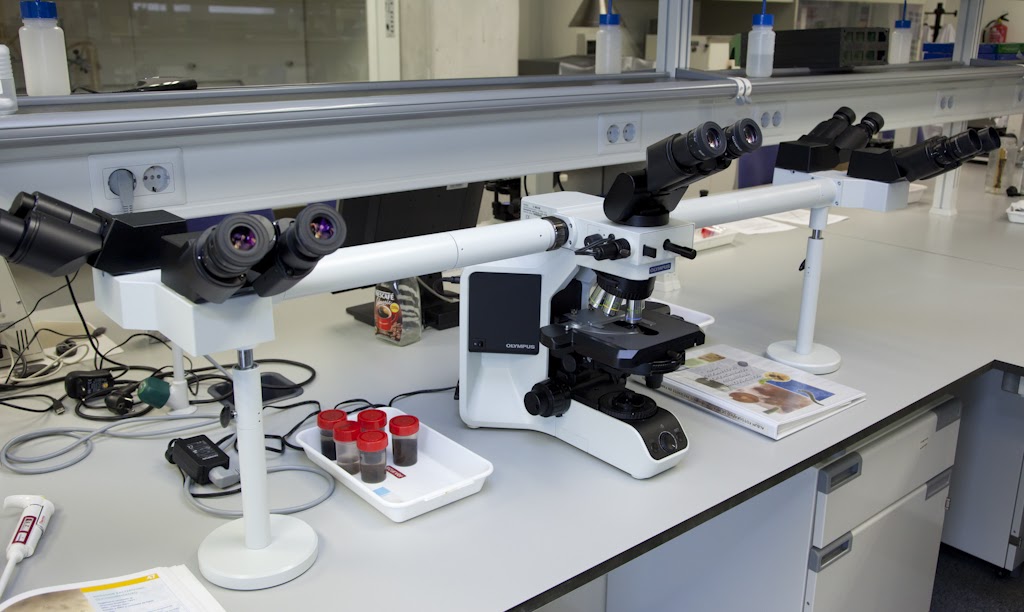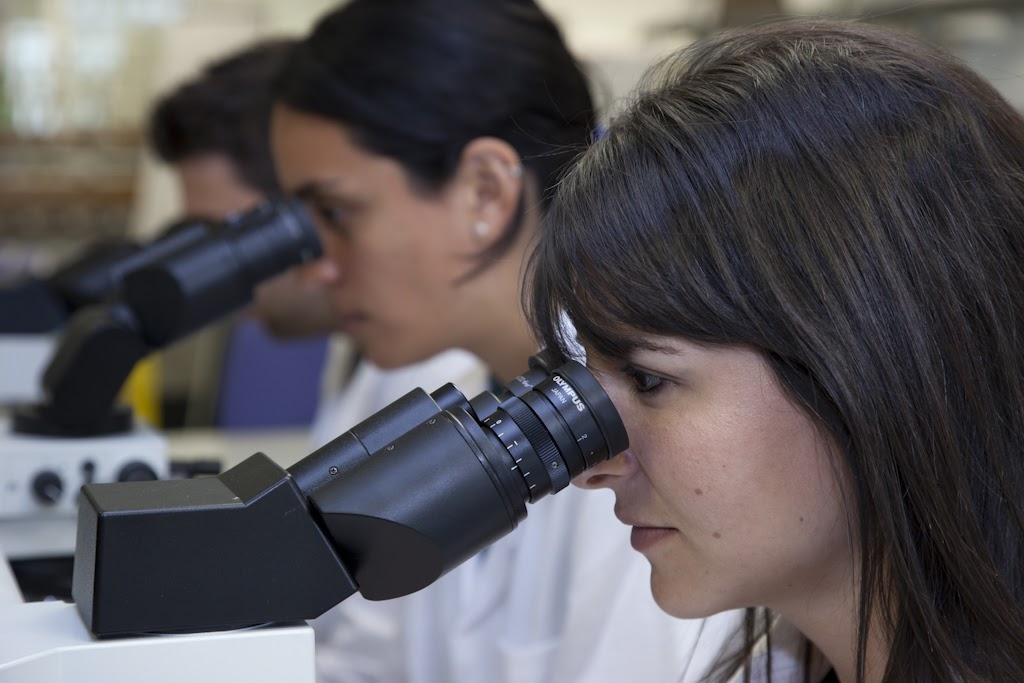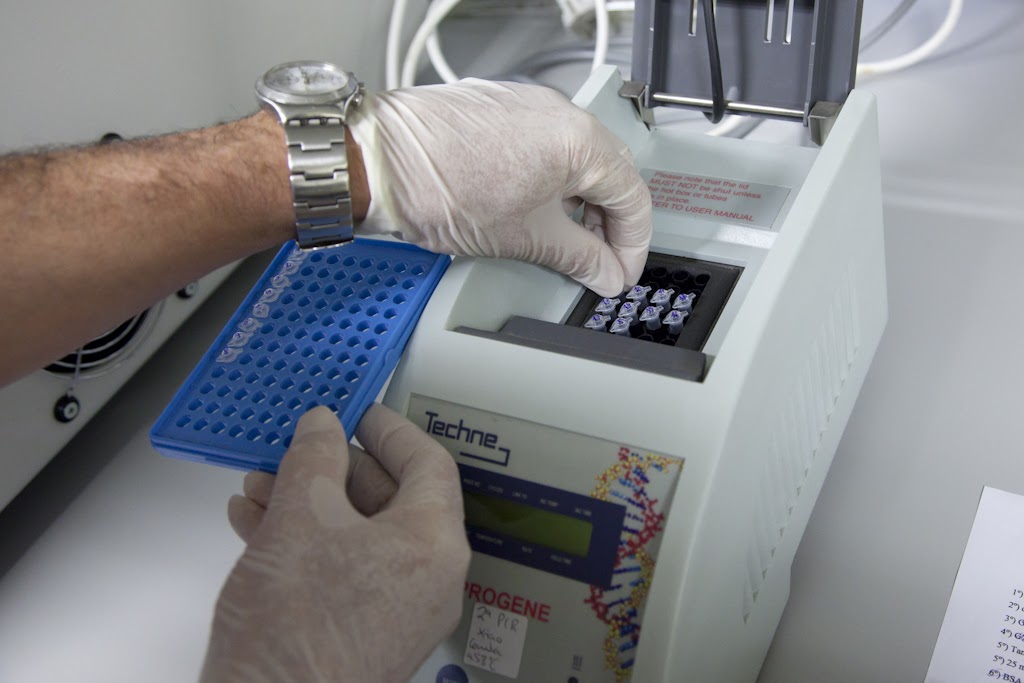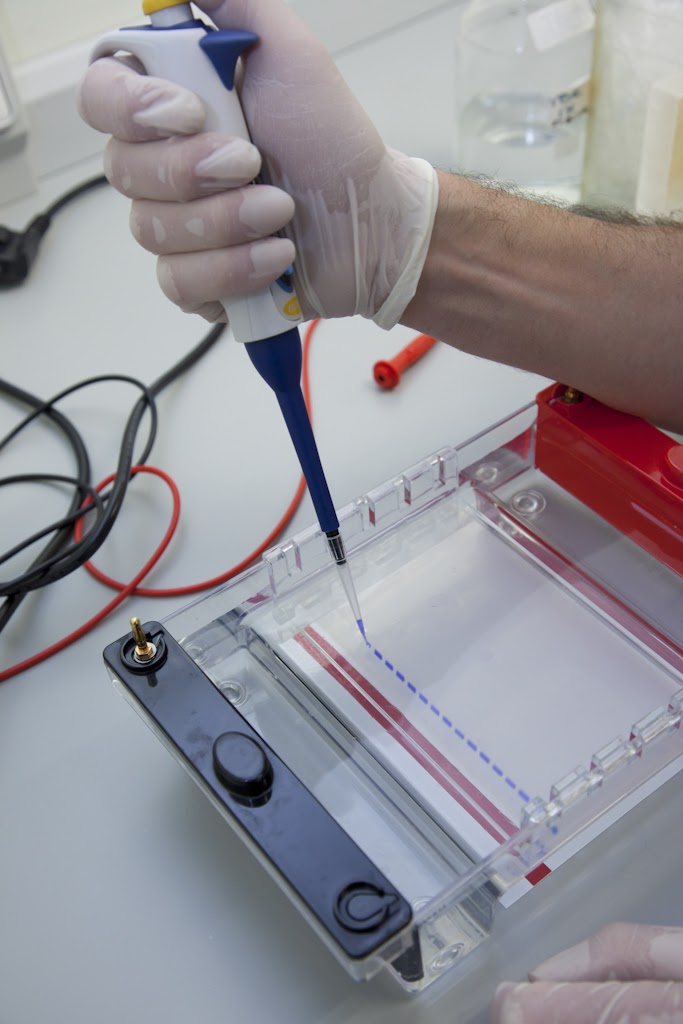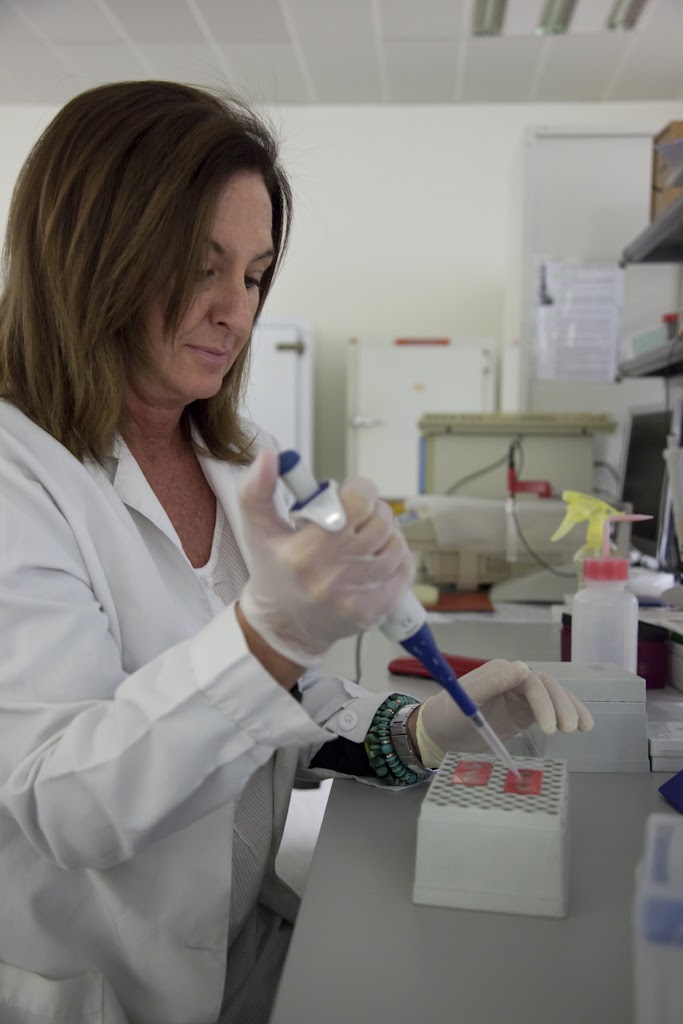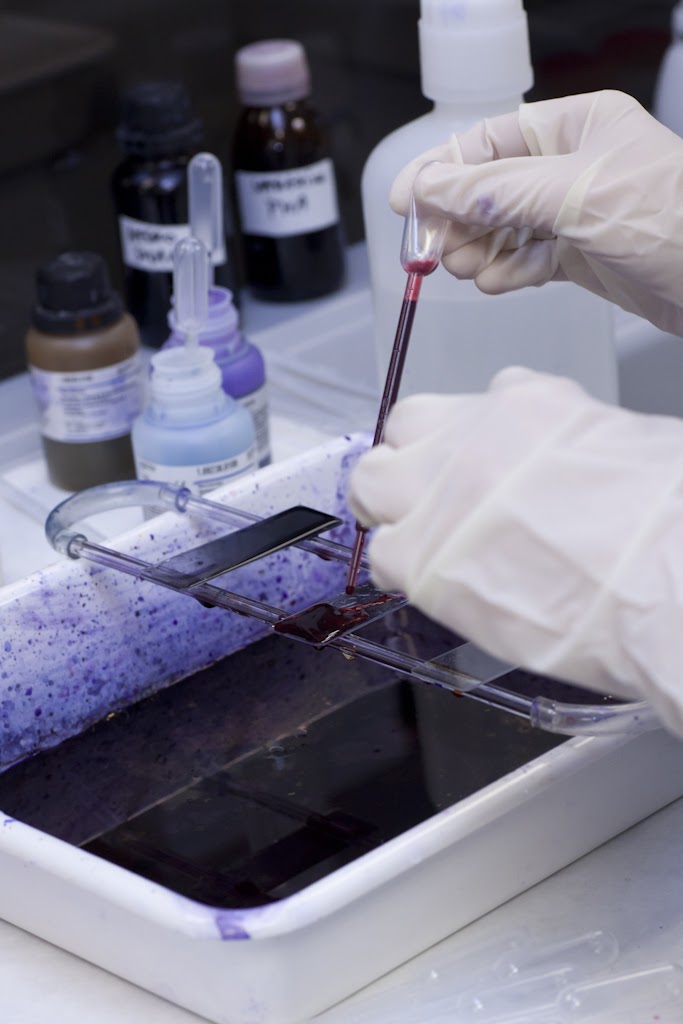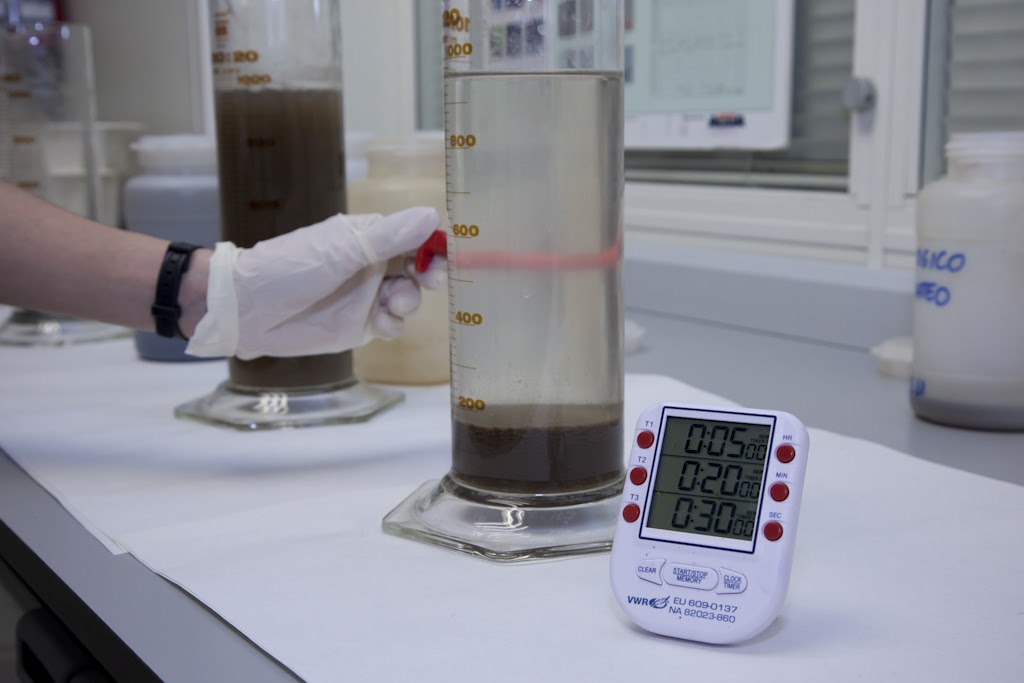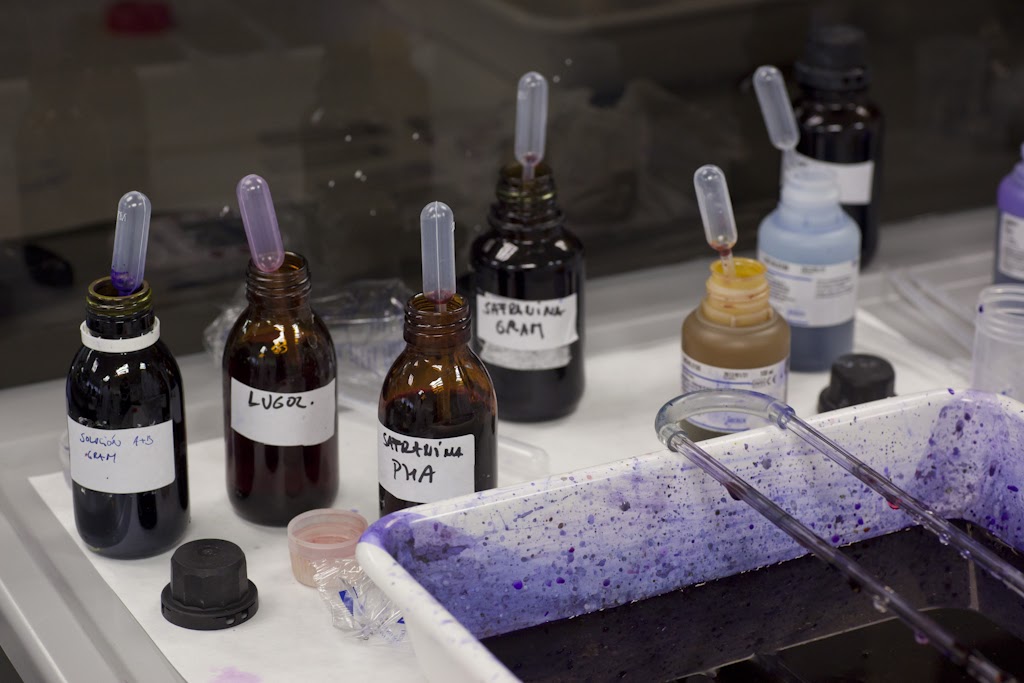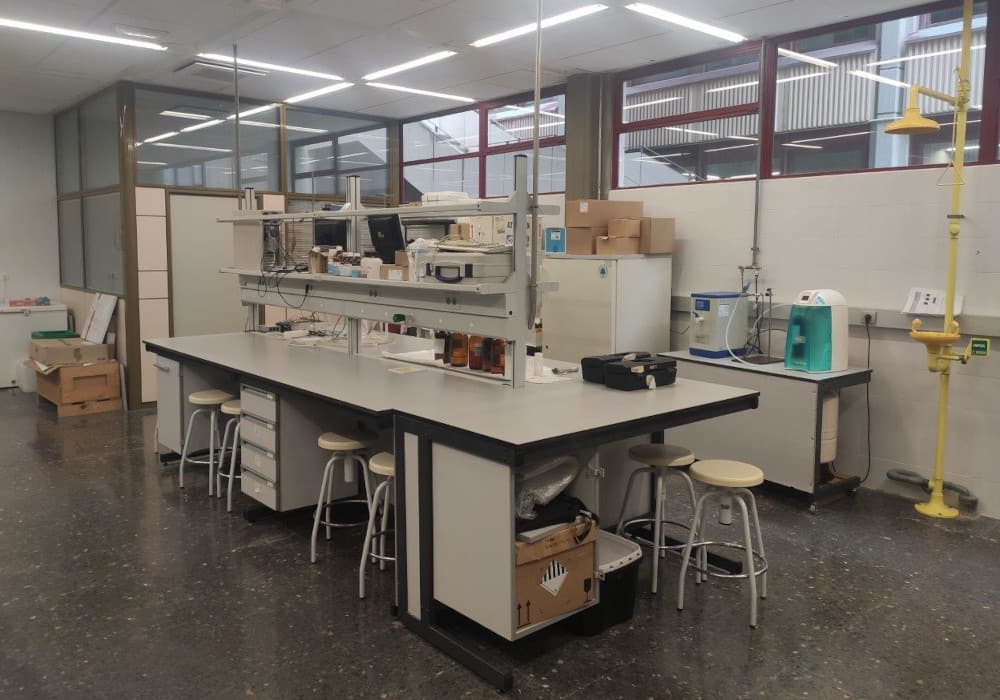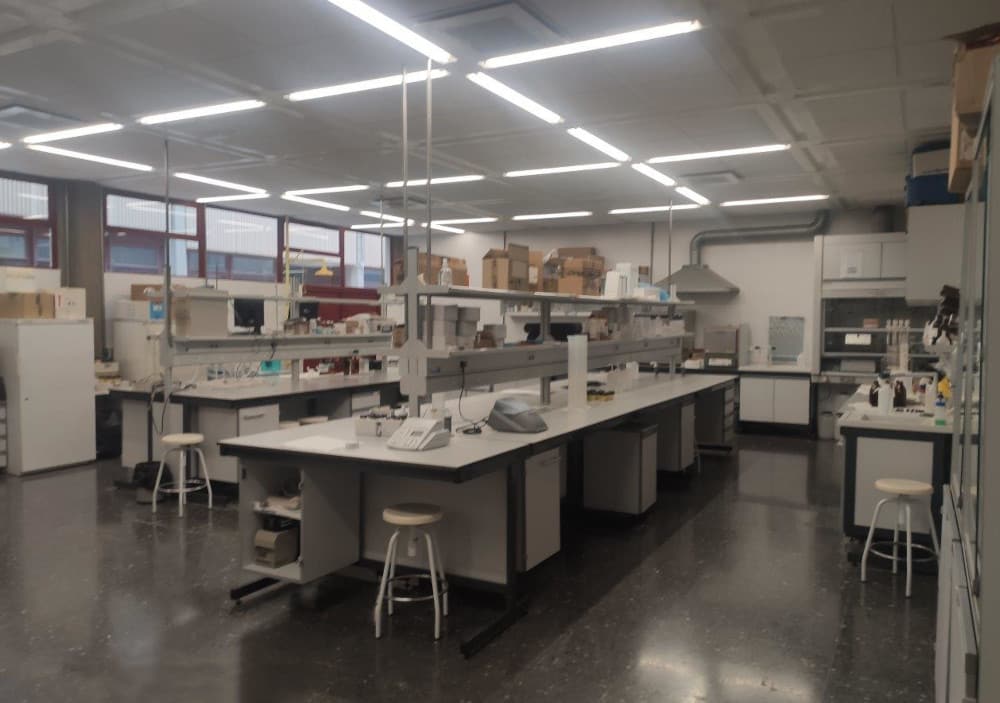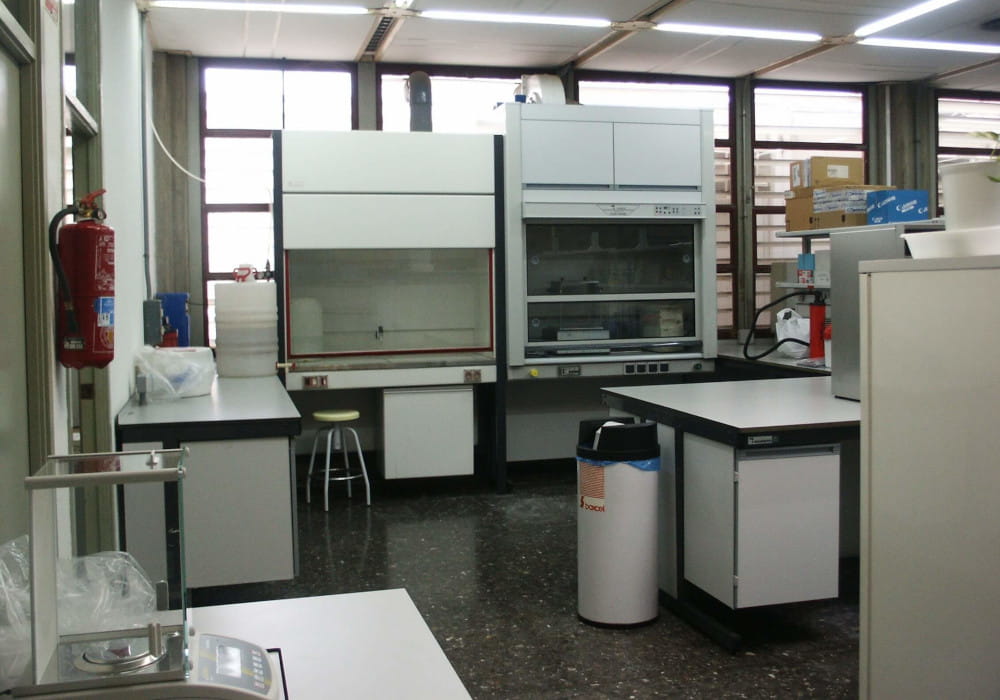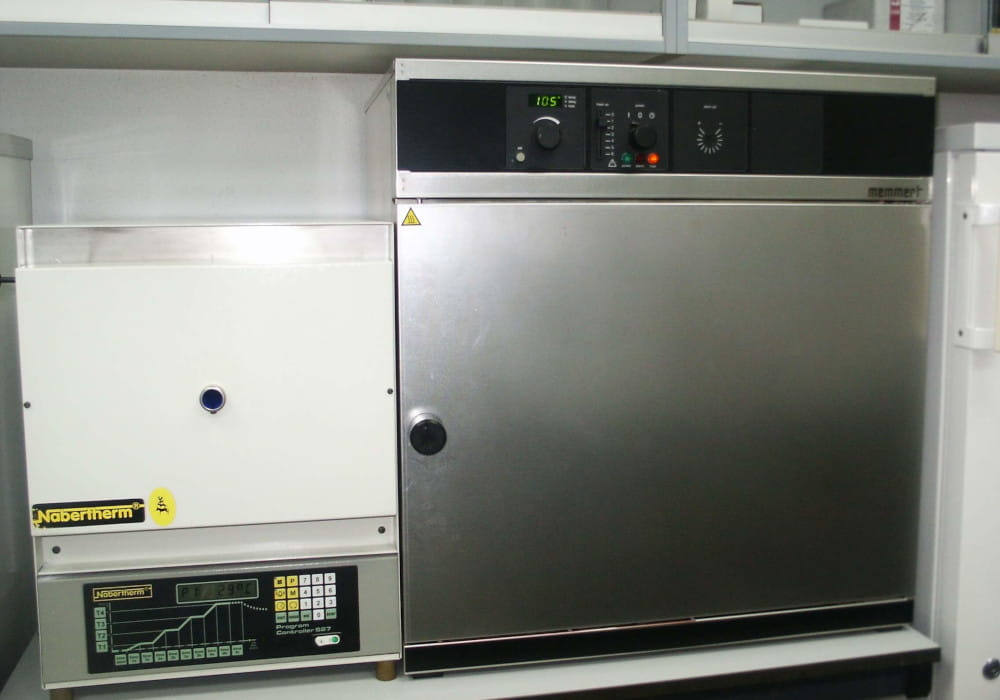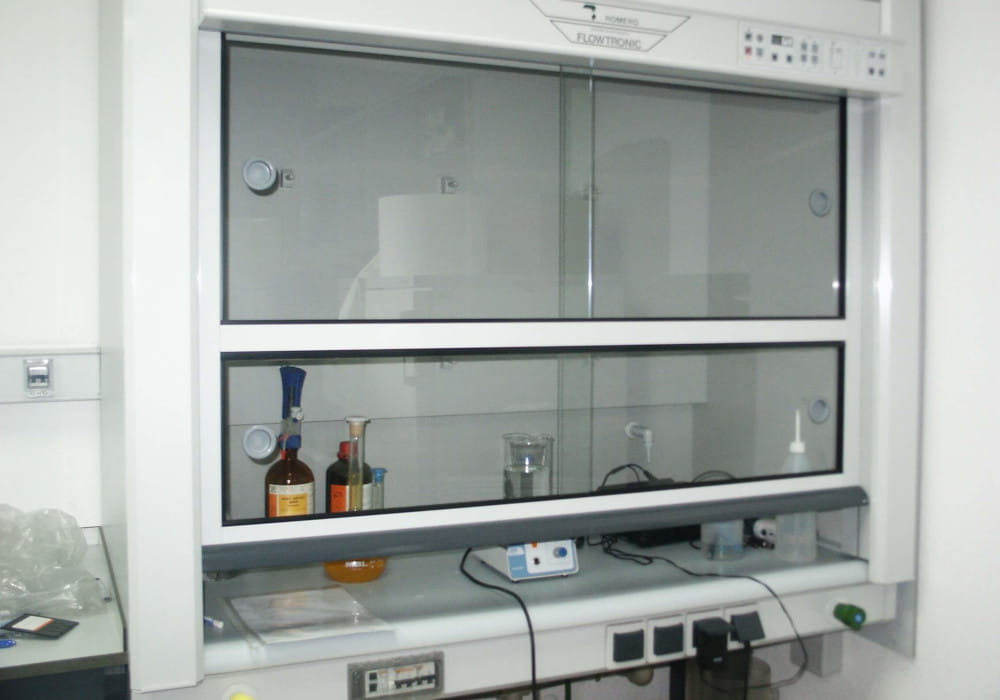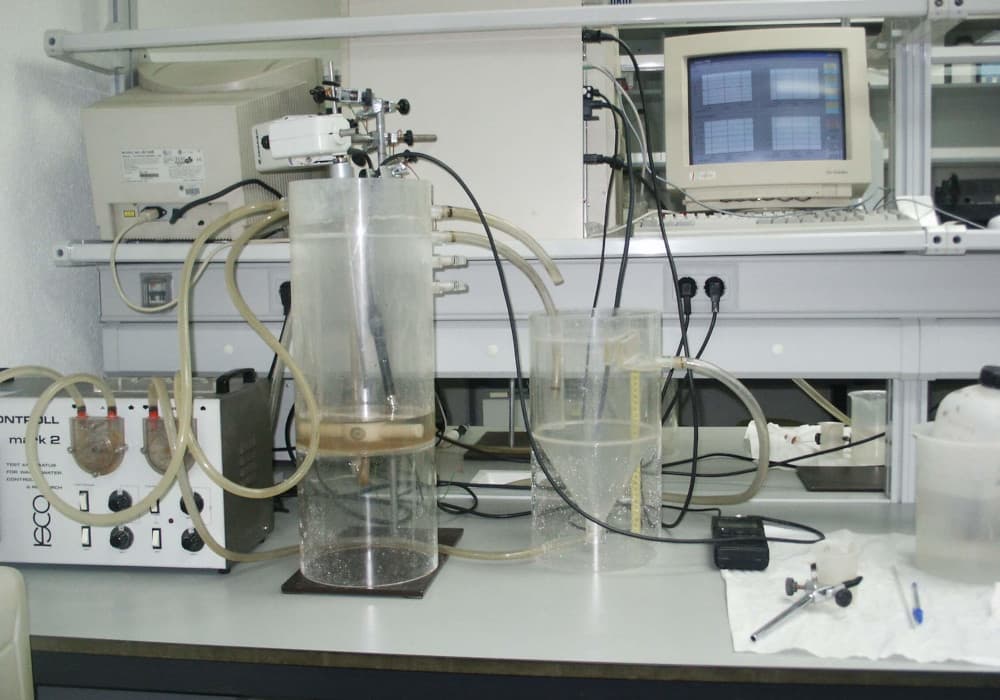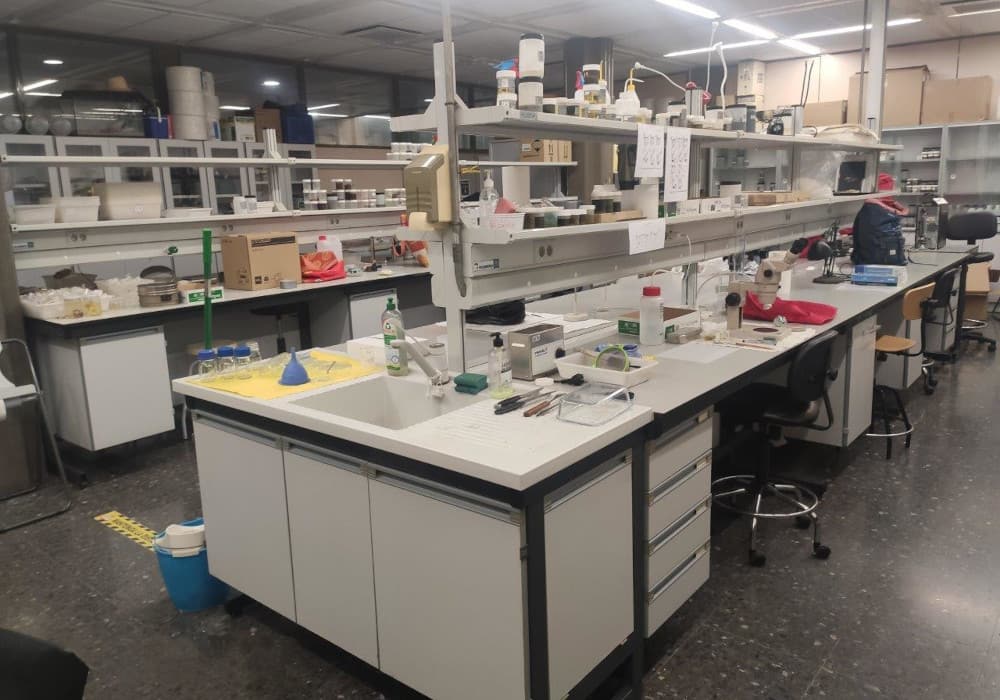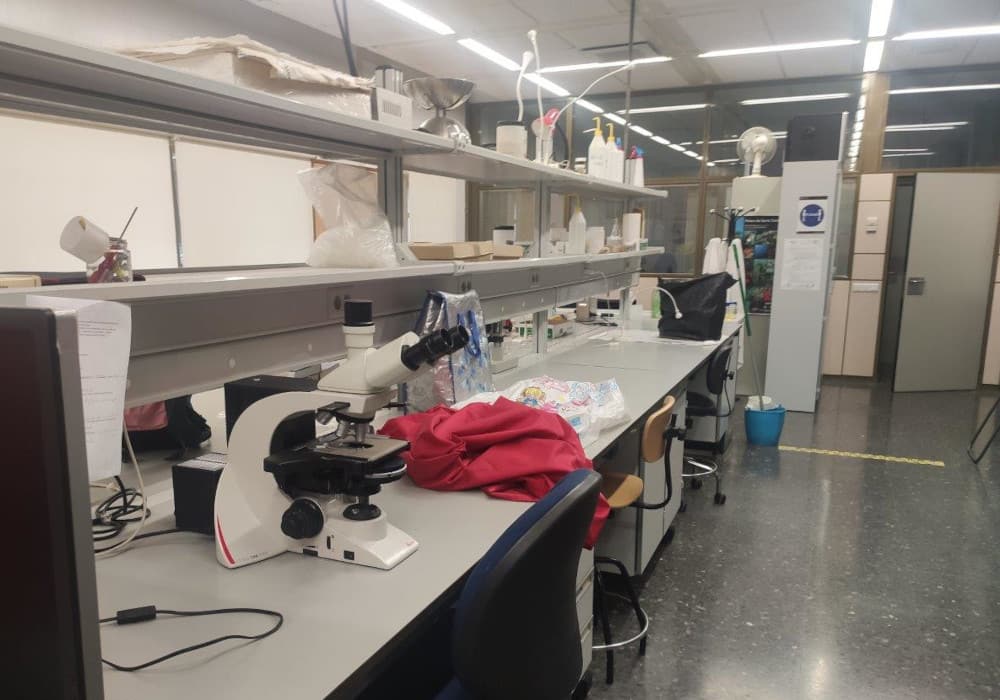Laboratories
We have 6 high-tech laboratories available
The IIAMA buildings occupy over 4350 m2, including four fully equipped research laboratories, offices and computer rooms. A large part of the premises are located in the Scientific Park of the Universitat Politècnica de València, known as the Polytechnic City of Innovation. Our modern installations equipped with the latest technology mean that we can guarantee the quality of our results and satisfaction to clients. IIAMA laboratories are at the disposal of all businesses and organisations that require any type of work or analysis in our research fields. Our most important characteristics and services are the following:
- Mixer mill for Retsch MM301 particle size reduction.
- Equipment to determine toxicity in Microtox samples.
- Continuous flow autoanalyzers: Evolution II Alliance Instruments and Integral Future Alliance Instruments.
- Milestone ETHOS 1 Microwave. Mod ACT 36-Rev01.
- Perkin Elmer Analyst 800 atomic absorption spectrophotometer with a AS90 and FIAS 100 autosampler.
- Metrohm 797 VA Computrace voltmeter ammeter.
- Microscopes: Nikon Optiphot and Leica DM2500, with an ultra high resolution digital camera.
- Leica M80 magnifier.
The Environmental Technologies and Environmental Impact Laboratories
The laboratory of Environmental Technologies and Environmental Impact Assessment occupies 586 sqm and it’s located at the Polytechnic City of Innovation. It’s specialized in offering services related to the characterization of environmental conditions in water, as well as sediments, in continental ecosystems, marines and transition. At this modern laboratory, in addition to the regular equipment that you can find in an environmental laboratory (water purification equipment, pHmeters, conductimeters, oximeters, turbidimeters, scales, heaters, muffle furnaces, centrifuges, sterilizers and autoclaves, etc.) you will find the following specific equipment for field sampling and analysis:
-
-
- Multiparameter probes, CTD, NXIC-CTD-ADC RS232 Falmouth scientific, INC and YSI 6600 V2, that allows simultaneous measurement and up to 50 meters of depth: temperature, conductivity, salinity, total dissolved solids, dissolved oxygen, saturation percentage, pH, REDOX potential and depth.
- PONAR type dredgers for bottom sampling.
- Sampling device: SWISS (Sampler Water Interphase System) and SWASS (Superficial Water Sampler).
- Van-Dorn bottles in order to take water samples at different depths.
- Plankton nets in various mesh sizes.
- Spectrophotometer Perkin Elmer Lambda 35 UV/VIS.
- Salinometer (inductive conductivity meter). Guildline 8410 Portasal Portable Salinometer.
- IIshin FD5510 Lyophilizer.
-
The River Engineering, Hydraulics and Hydraulic Works Laboratory
The Laboratory of River Engineering, Hydraulics and Hydraulic Works is approximately 1600 sqm, dedicated to experimental teaching, research and technology transfer services for companies and administrations. It also has a workshop with the necessary equipment and tools for the construction and machining of parts and elements that make up scale models, computer equipment and specific software in which to carry out different numerical simulations. At the national level, the laboratory is part of the Network of Hydraulic Laboratories of Spain.
The research focuses mainly on the fields of river engineering, hydraulics of large dams, other hydraulic structures and urban hydraulics, both from the point of view of physical and numerical modeling.
-
-
- Emulsified flows and energy dissipation in hydraulic structures.
- Fluvial hydrodynamics and geomorphological changes in natural riverbeds.
- Local erosion in bridges and other structures inserted into riverbeds.
- Vulnerability of bridges over riverbeds, facing river overflows.
- Computational fluid mechanics applications in civil and hydraulic engineering.
-
In order to do this, the laboratory has several experimentation channels with open channel flow of different lengths and widths and variable slopes, eroded beds, and the possibility of liquid flow feed, or mixed water – air. The laboratory’s current pumping capacity is 200 lps of water flow and 90 lps of airflow. The channels are instrumented with pressure sensors, optical fiber, doppler speedometers, analogue and digital level sensors, cameras and video cameras. The lines of work encompass numerical-experimental modeling of open channel flow within hydraulic channels and structures.
Edaphology Laboratory
The Water Microbiology Laboratory
The Water Microbiology Laboratory covers an area of approximately 373 sqm and is located at the Polytechnic City of Innovation. The laboratory specializes in:
-
- Detection of pathogenic microorganisms such as protozoa (Giardia, Cryptosporidium, Acanthamoeba) and bacteria (Helicobacter, Legionella) in sewage and drinking water using molecular techniques and NGS.
- Characterization of the toxicity of wastewater, leachate and sediment samples with the Microtox system.
- Measurement of biomass in active waters and sludge from the determination of ATP.
- Metabolic activity determination of the processes of residual waters purification from the measurement of the enzymatic activities.
- Respirometric analysis and bioindication of active sludge.
- Identification and quantification of bacterial communities of the processes of biological purification of residual waters using molecular techniques.
The laboratory has, among others, the following equipment:
-
- Bacteriological incubator oven, Refrigerated bacteriological oven.
- System of electrophoresis and gel documentation.
- Ultraviolet sterilizers.
- Phase contrast, Nomarsky and epifluorescence microscopes.
- Inverted microscope with multi position and phase contrast.
-
- Biological Safety Cabinet, PCR mini cabinet.
- UV / VIS spectrophotometer, Nanodrop UV / VIS spectrophotometer.
- Qubit Fluorometer.
- Active sludge pilot plant.
- Jar-test equipment.
- Manometric system for BOD5 determination.
- Respirometer.
- FastPrep homogenizer for DNA extraction.
- Turrax T25 and Ultra Turrax T8 homogenizer.
- Freezer at -80ºC.
- Real time PCR equipment, Gradient PCR thermocycler.
- Autoclaves, Refrigerated centrifuge, Microcentrifuges.
- Microbics Toxicity Analyzer.
- ATP meter.
The Water Quality Laboratory
The Water Quality Laboratory is approximately 559 sqm. Services offered include: conducting wastewater characterization studies with the objective of determining their physical, chemical and biological properties, as well as studies of wastewater treatability in which the intention is to determine the viability of degrading pollutants present in the wastewater, through a biological and / or a physicochemical way.
In addition to analyzing the biodegradability of wastewater, more detailed work can also be carried out: determination of the biokinetic parameters of the mathematical model that describes the processes of elimination of organic matter, nitrogen and phosphorus using a methodology based on respirometric techniques. In this manner and using the DESASS simulator afterwards, different treatment alternatives will be proposed and the most appropriate treatment scheme for each type of wastewater will be determined.
The Ecology laboratory
The Ecology laboratory is focused on the study of biological diversity in aquatic ecosystems, more specifically on benthic macroinvertebrates and zooplankton, since through them the ecological state of water masses is determined. For this, the laboratory has the necessary material for sampling in both lentic and lotic ecosystems and the auxiliary material necessary for the fixation and conservation of biological samples.
On the other hand, for the study and determination of these samples the laboratory has magnifying glasses and binocular microscopes. Standing out from the rest of the material, there is a magnifying glass and a digital microscope that allow the capture of scale photographs and the study of great detail of the taxa of interest.

